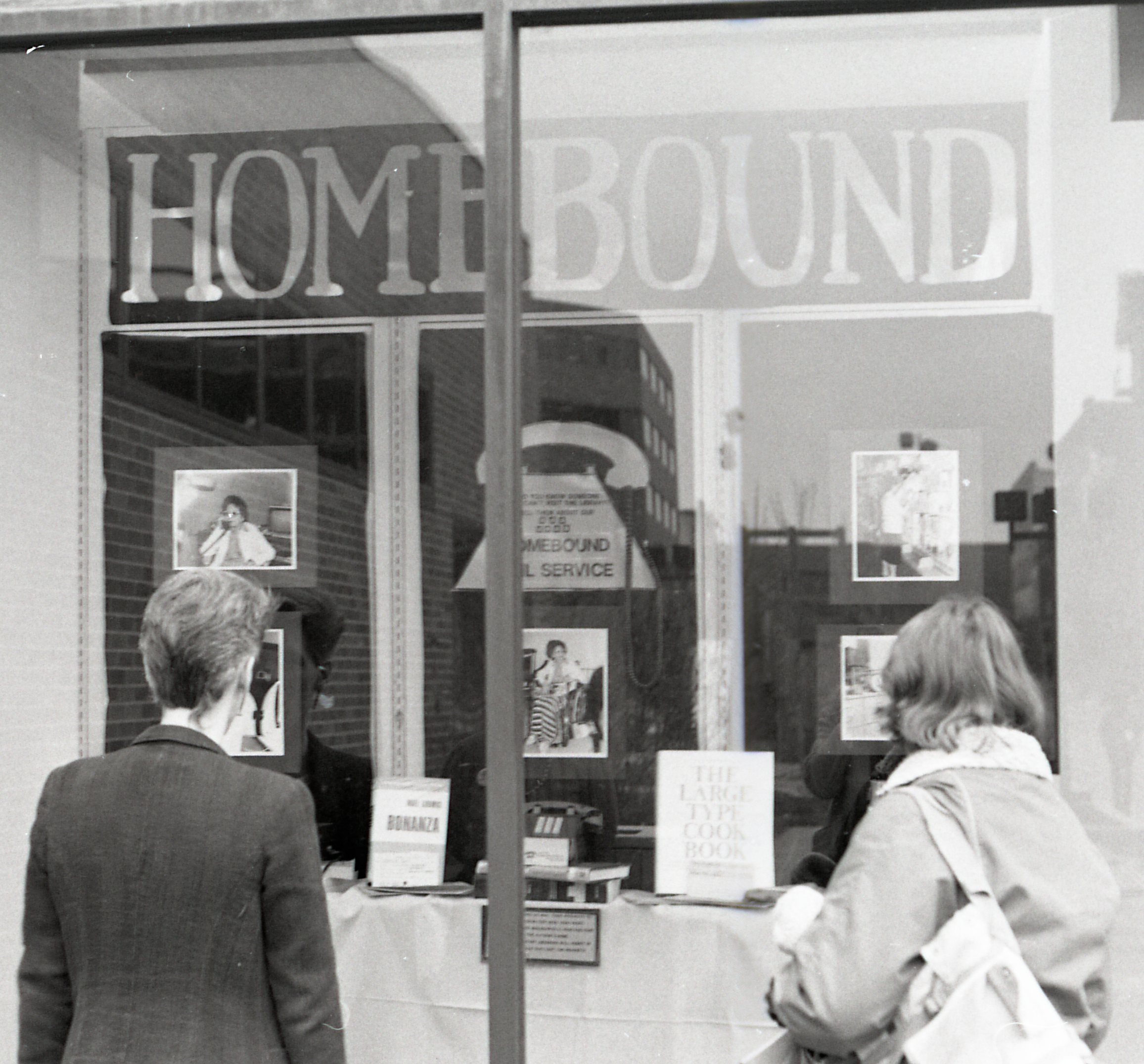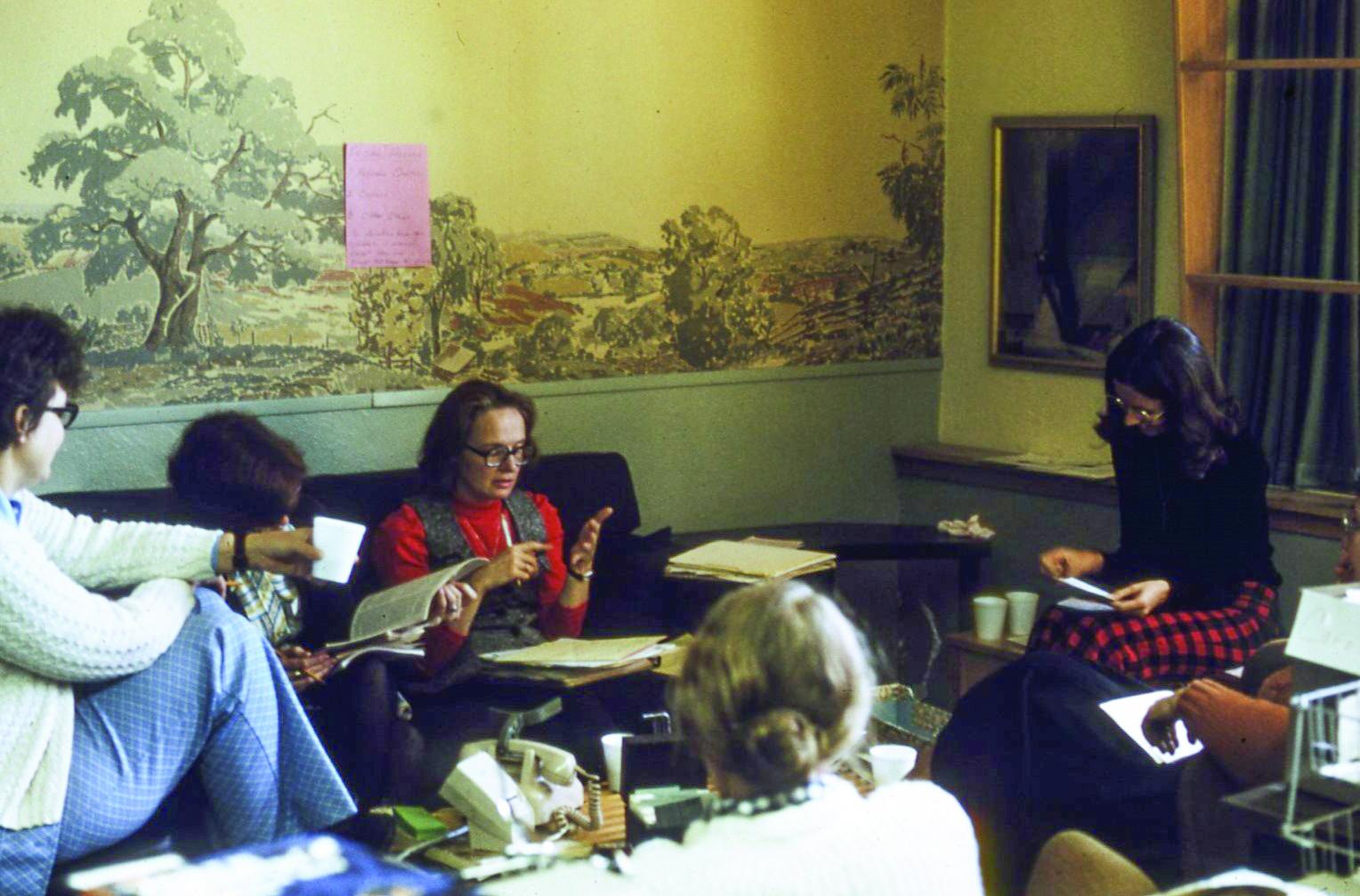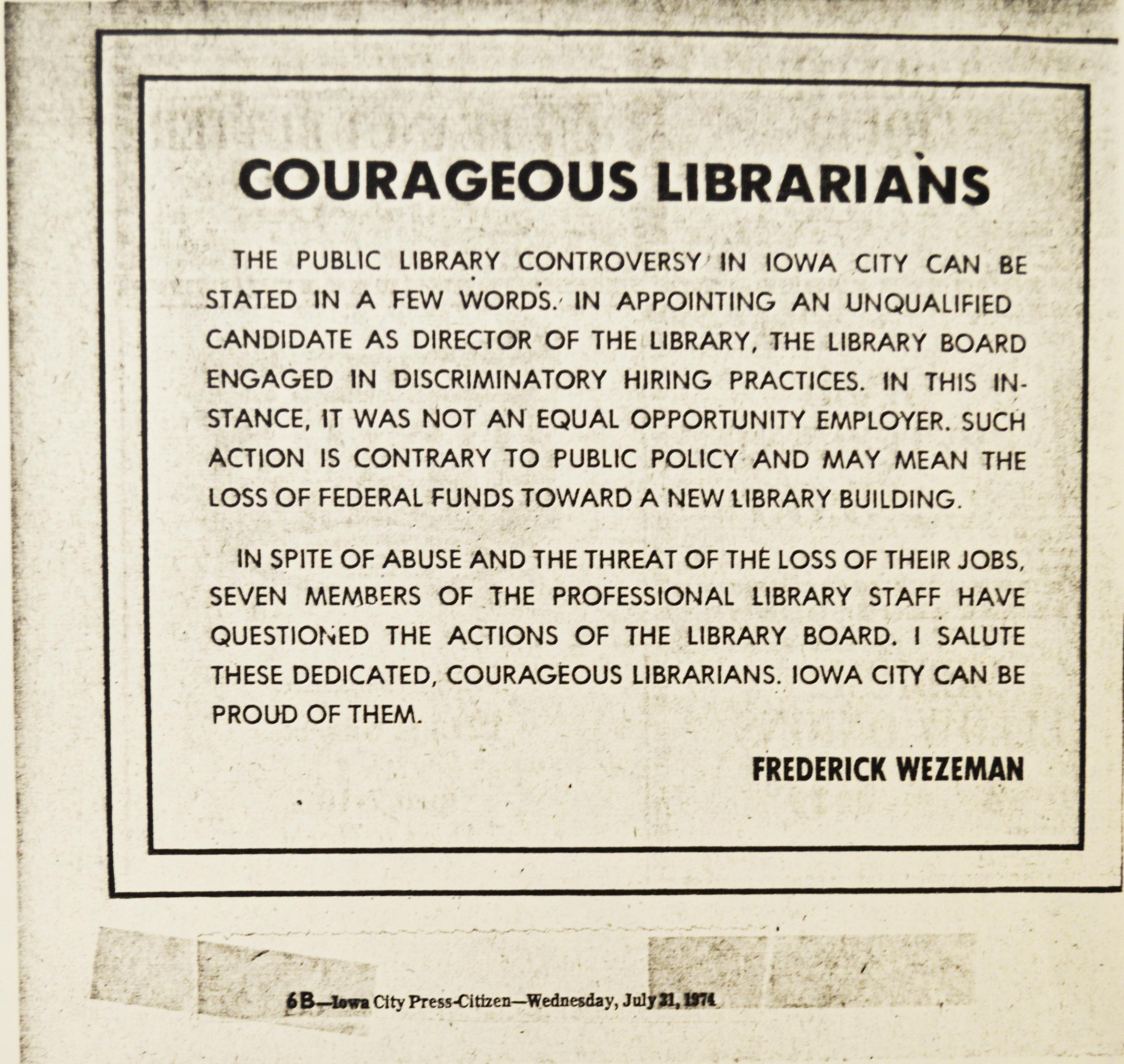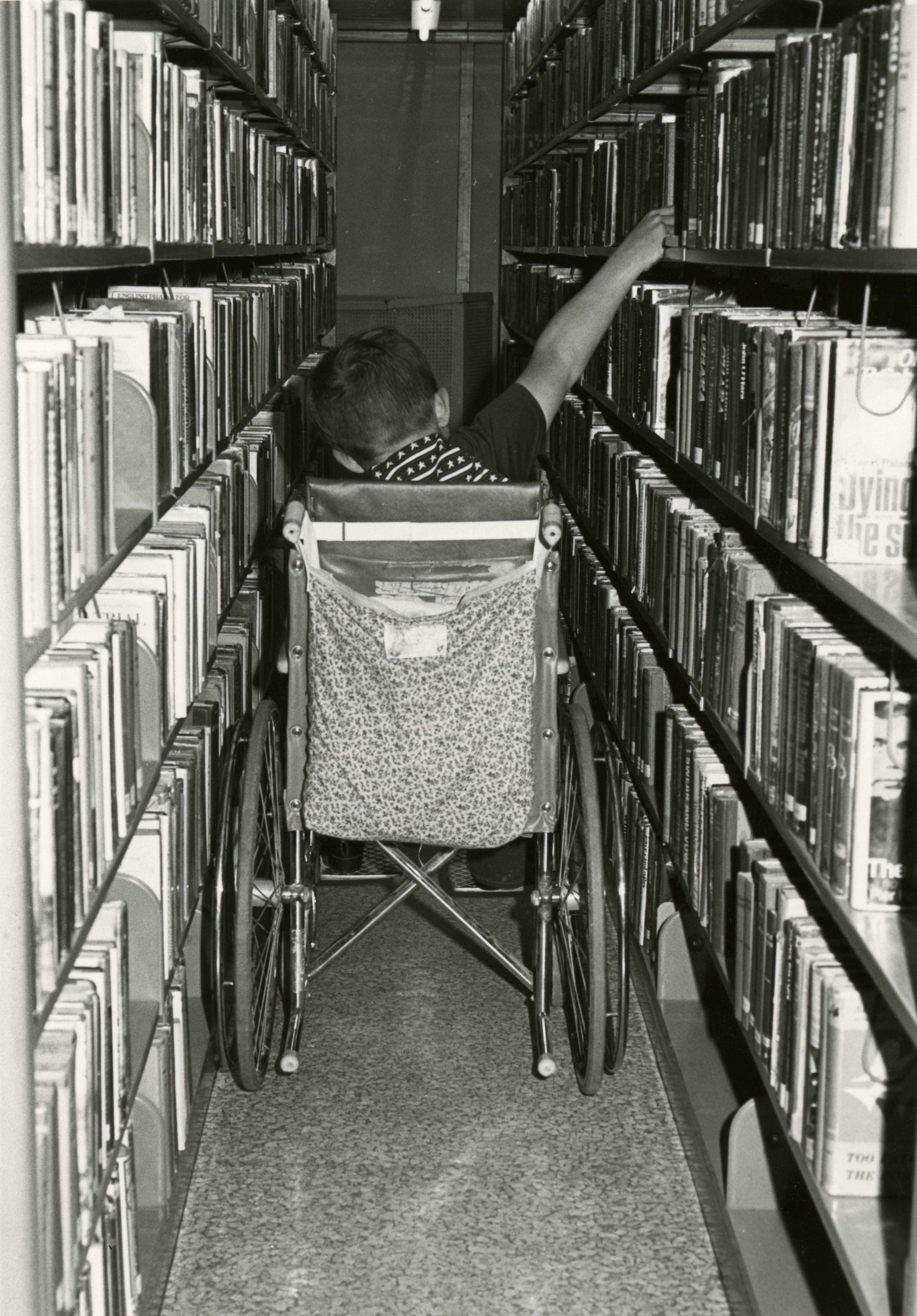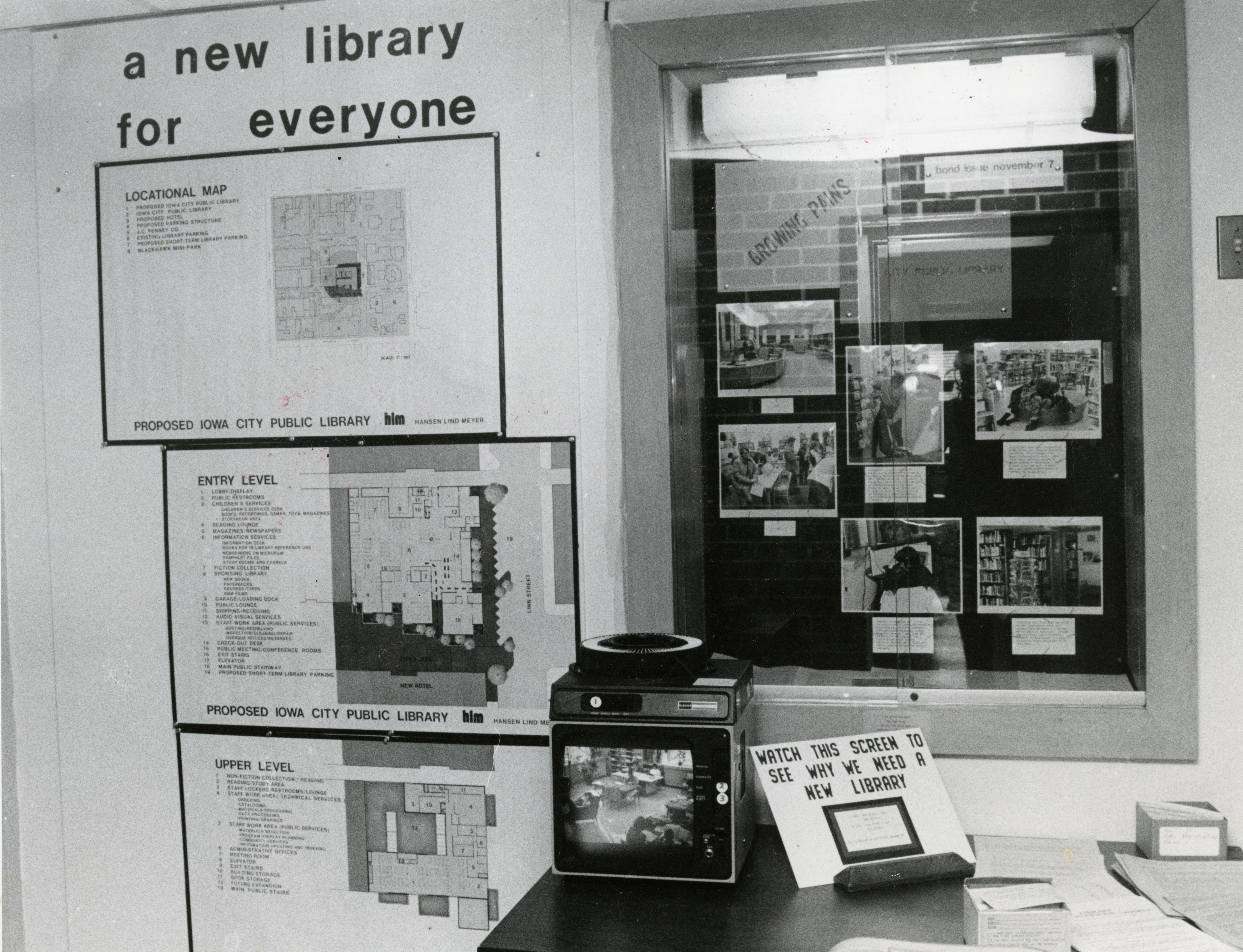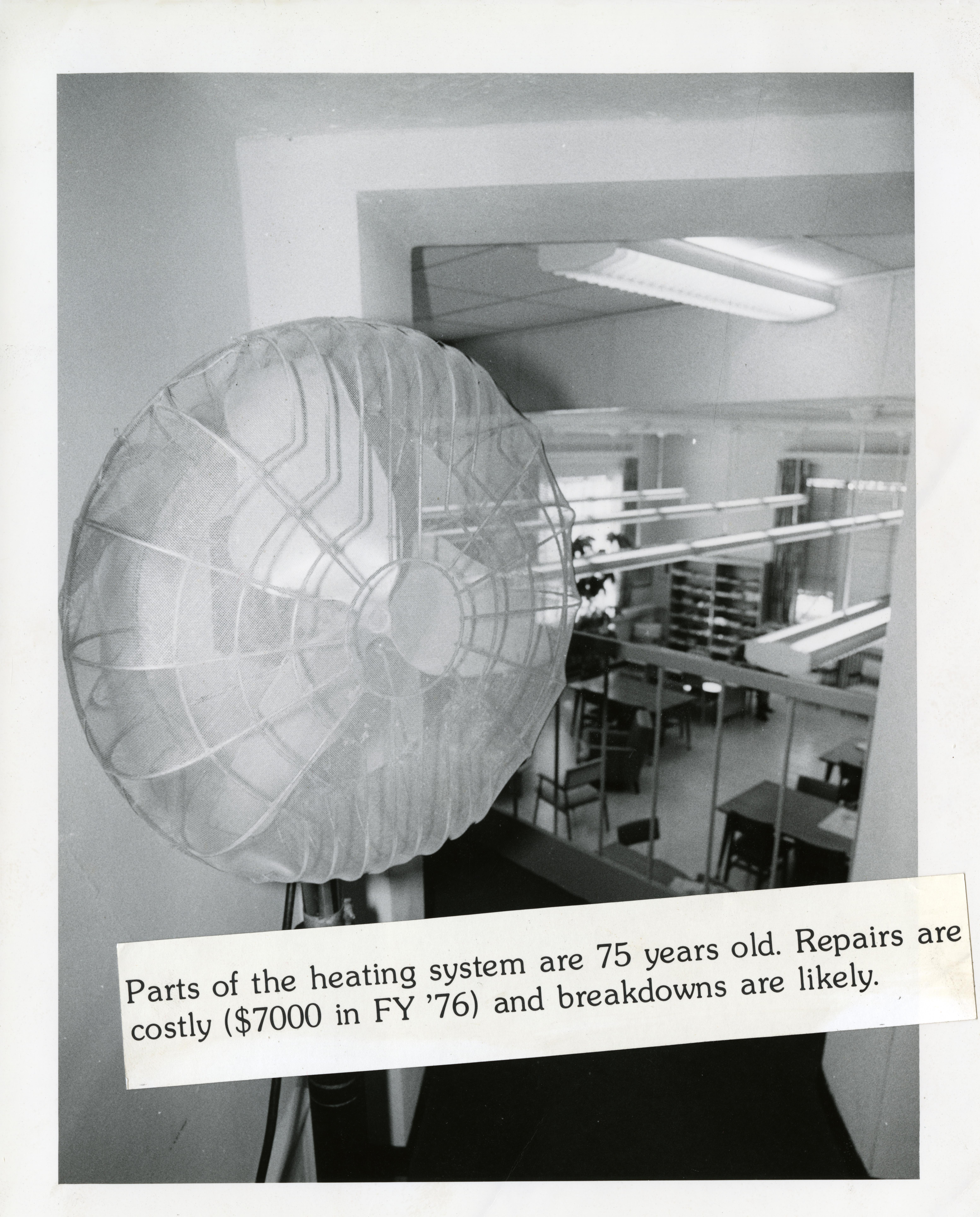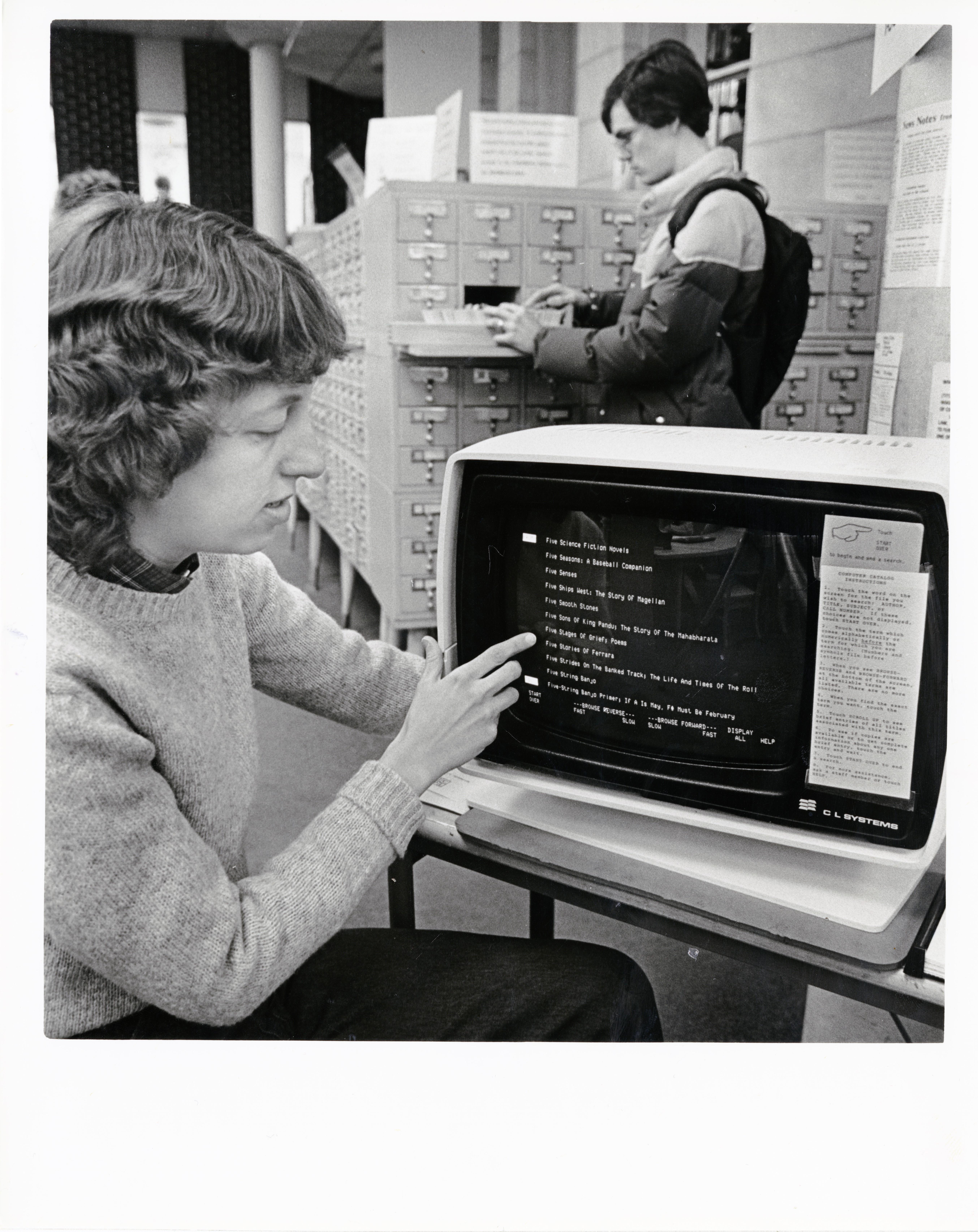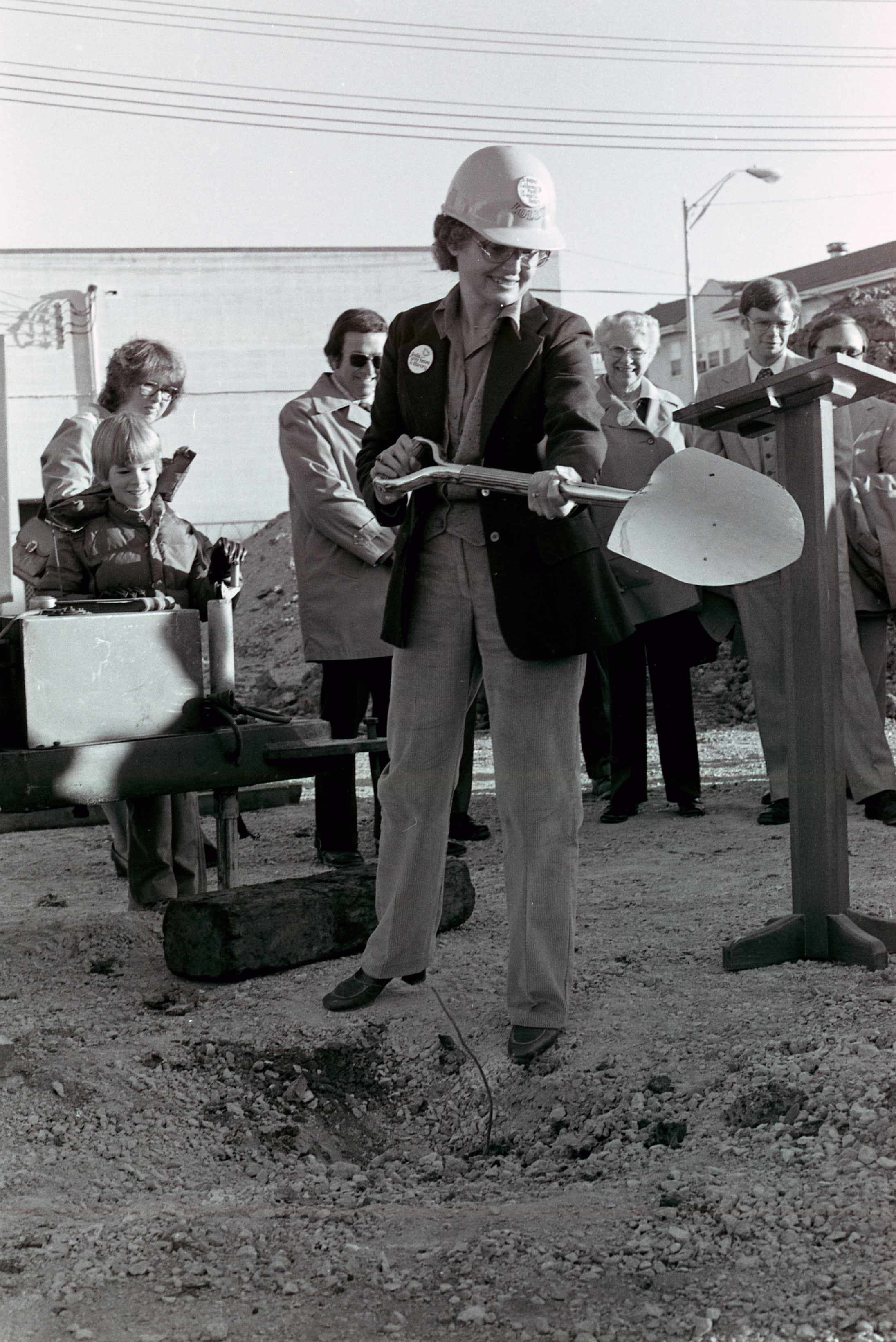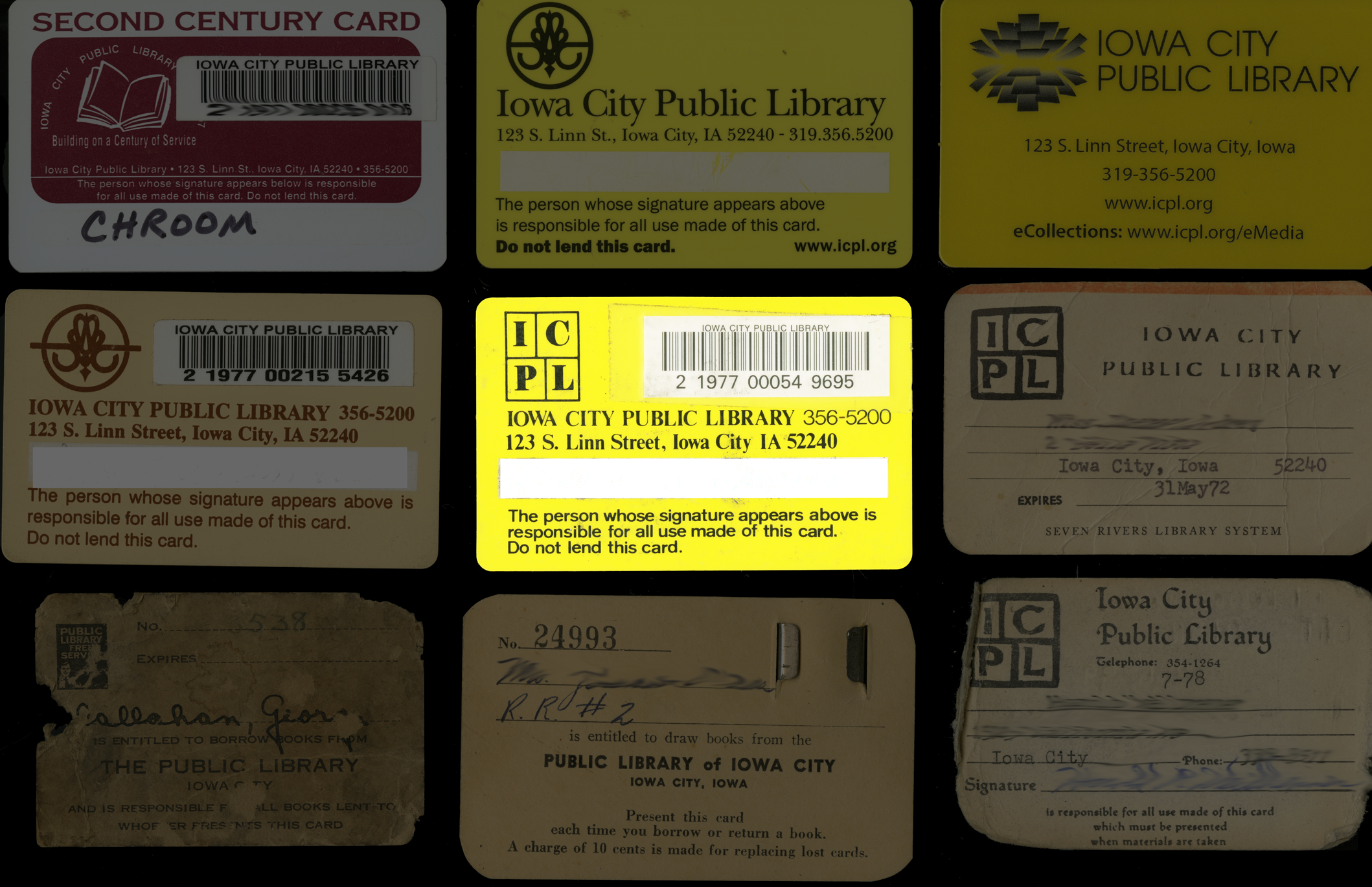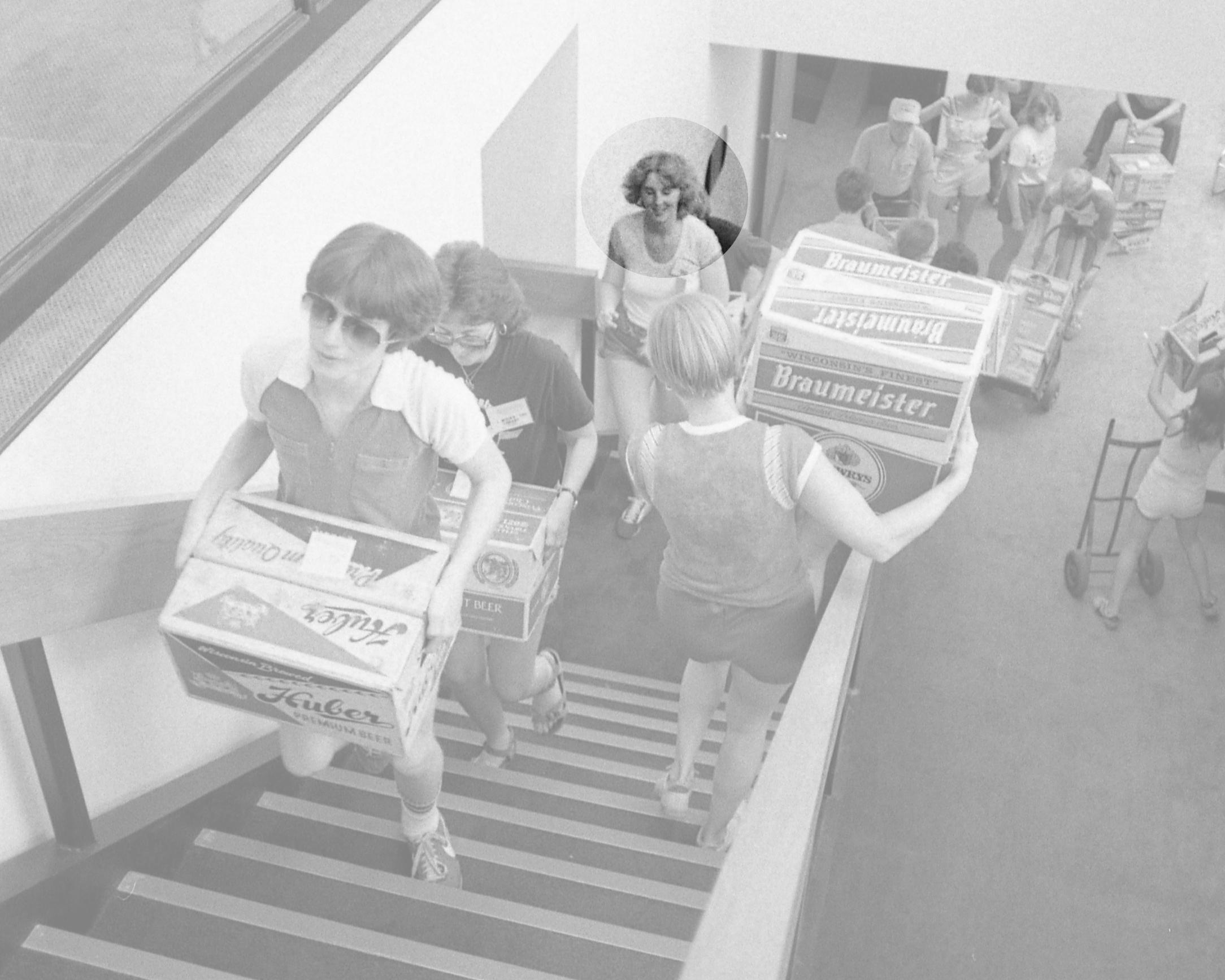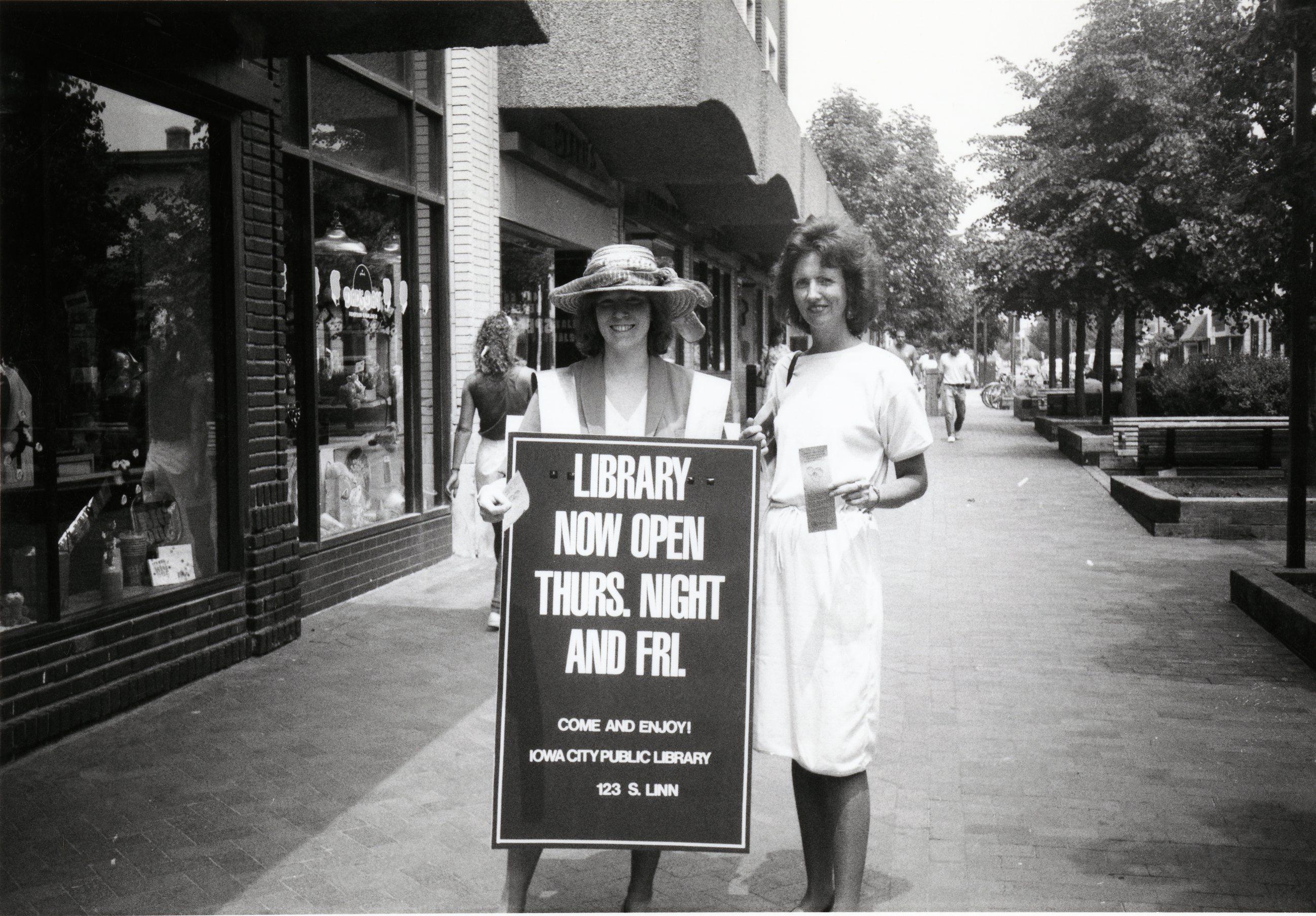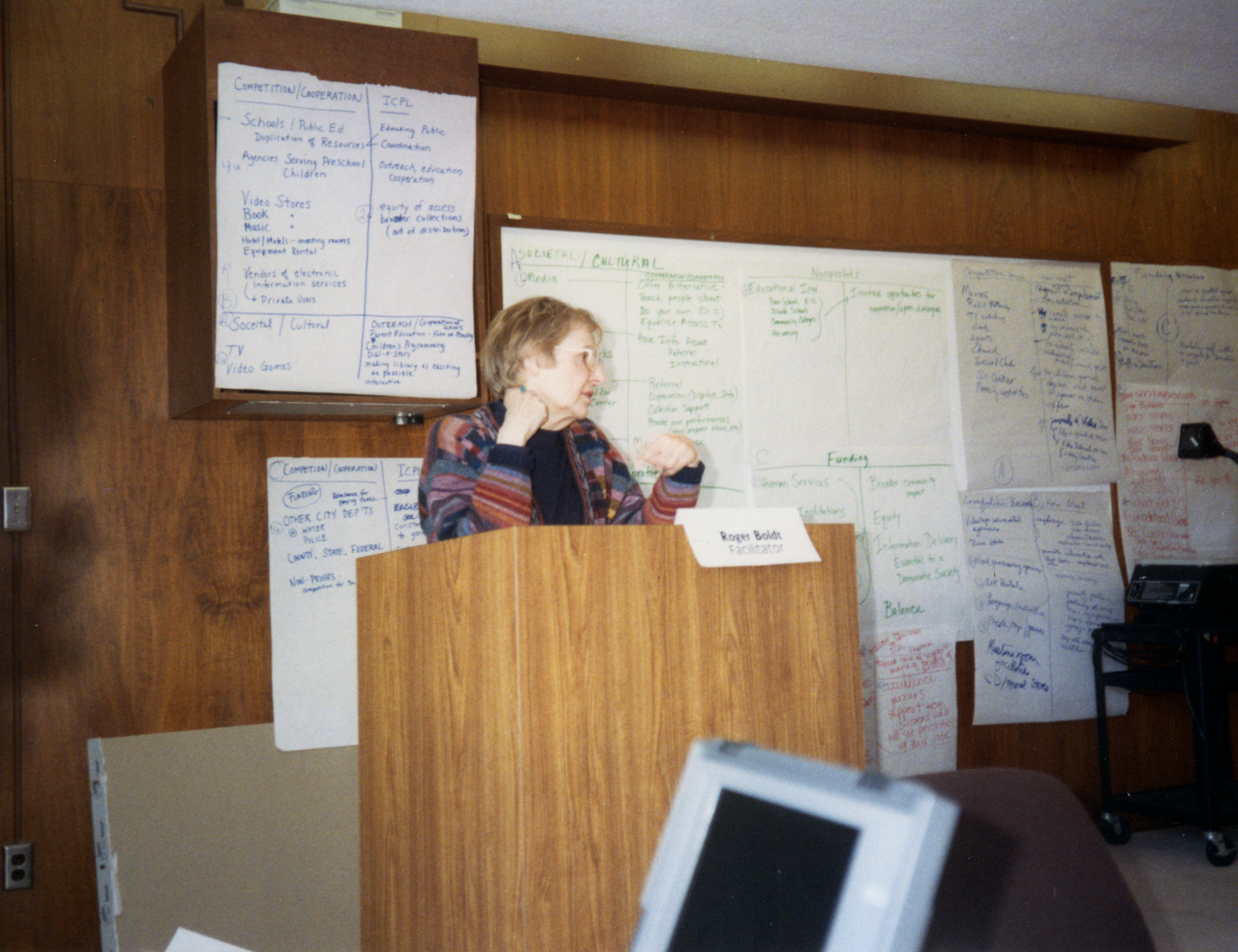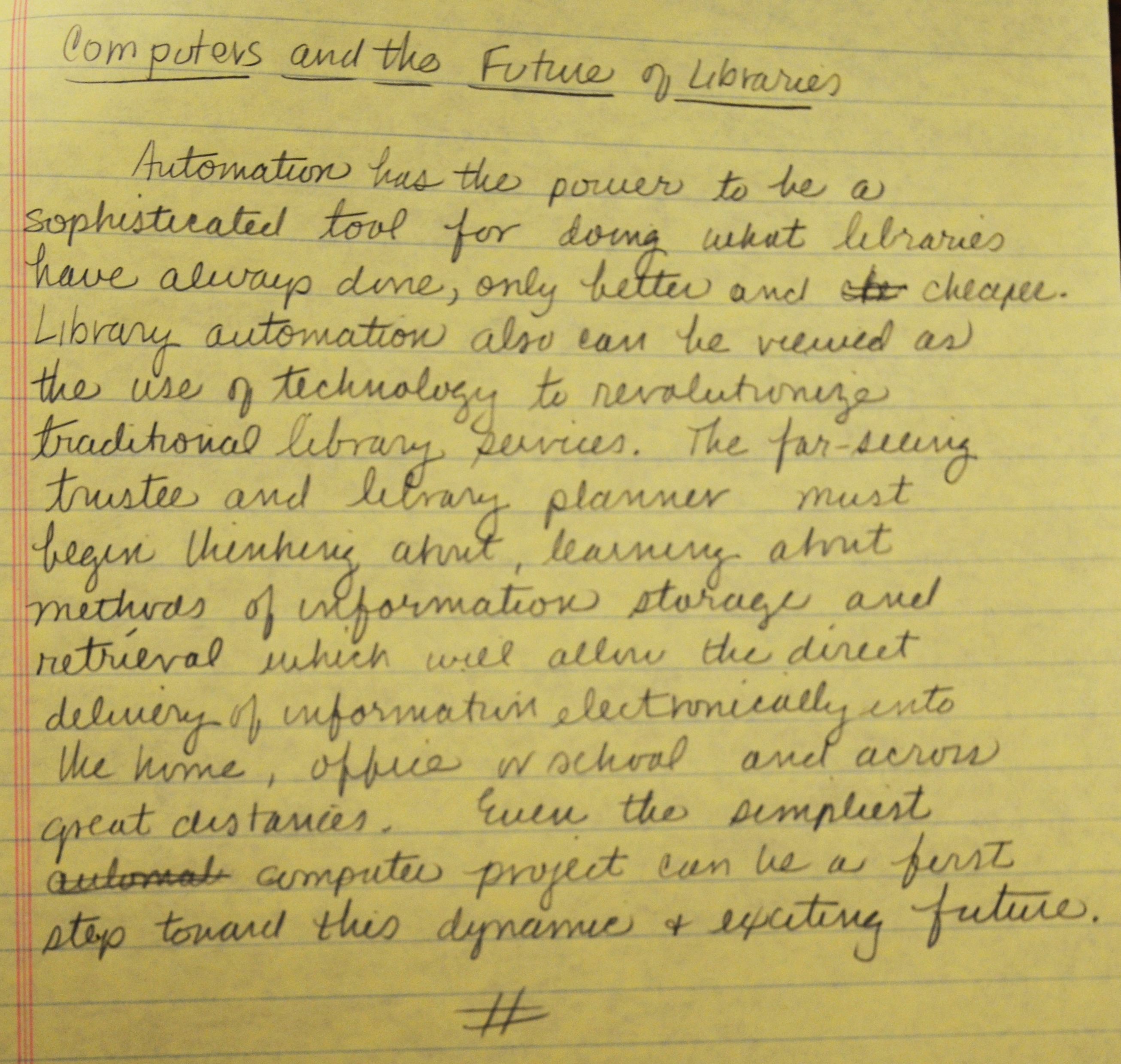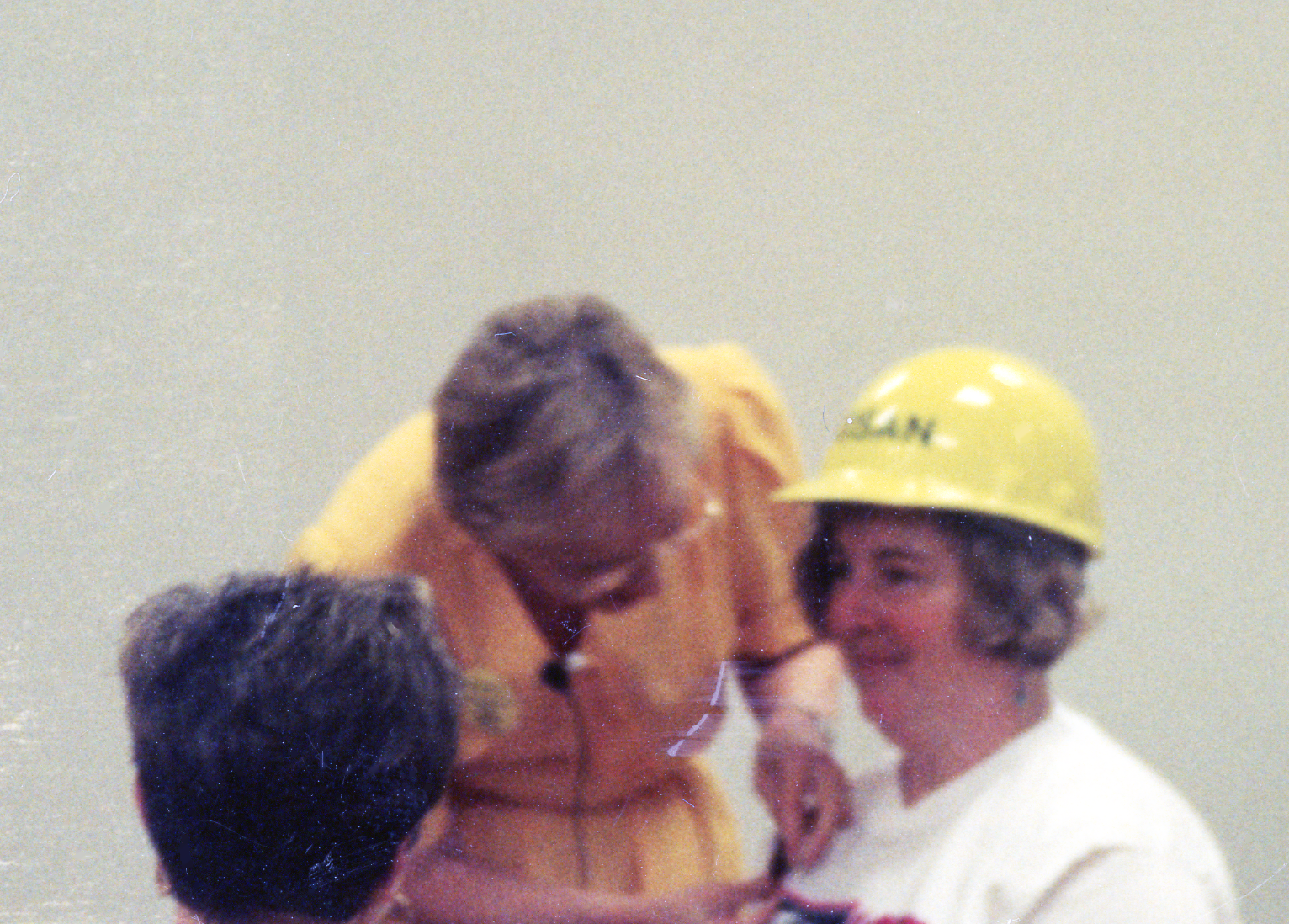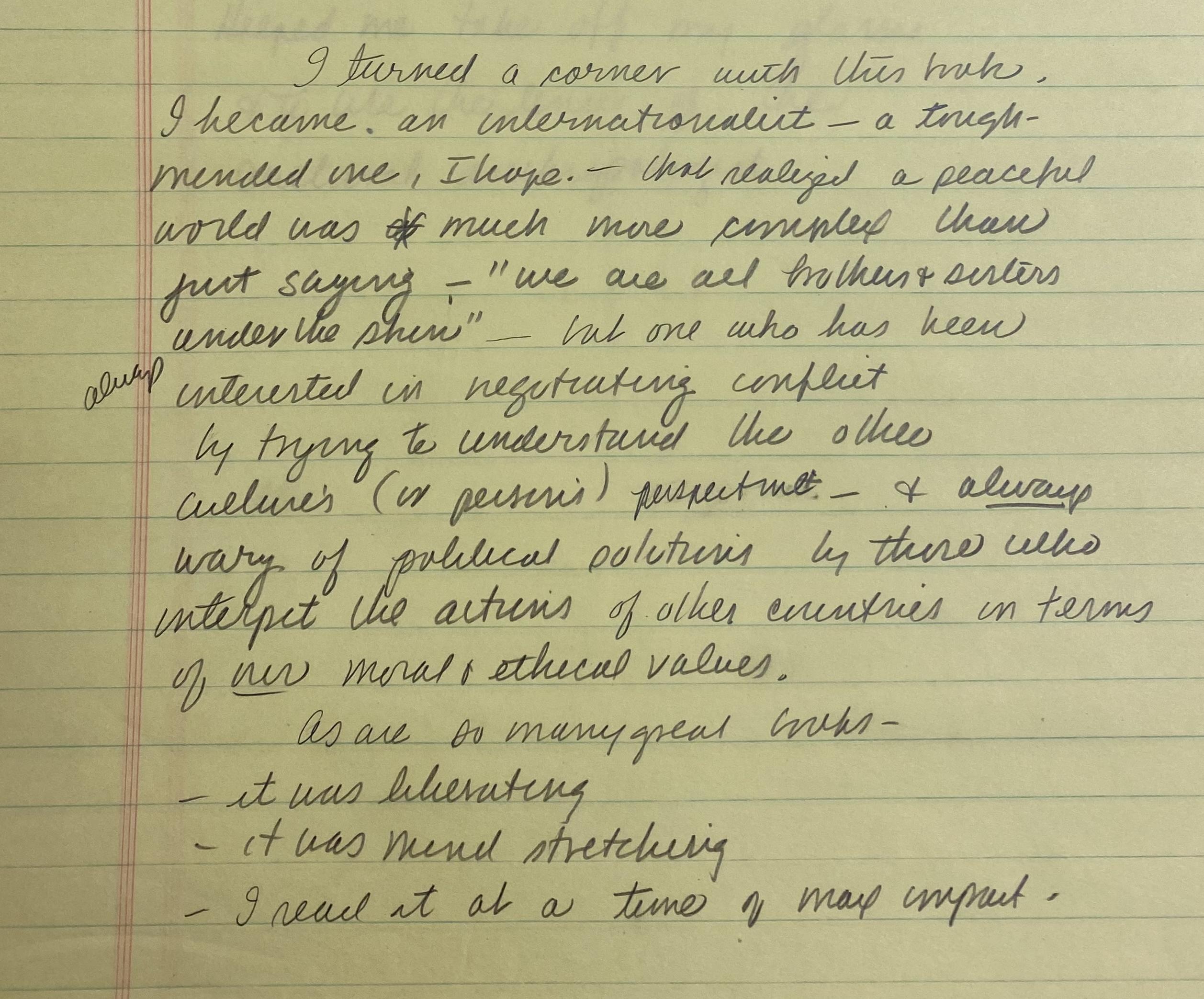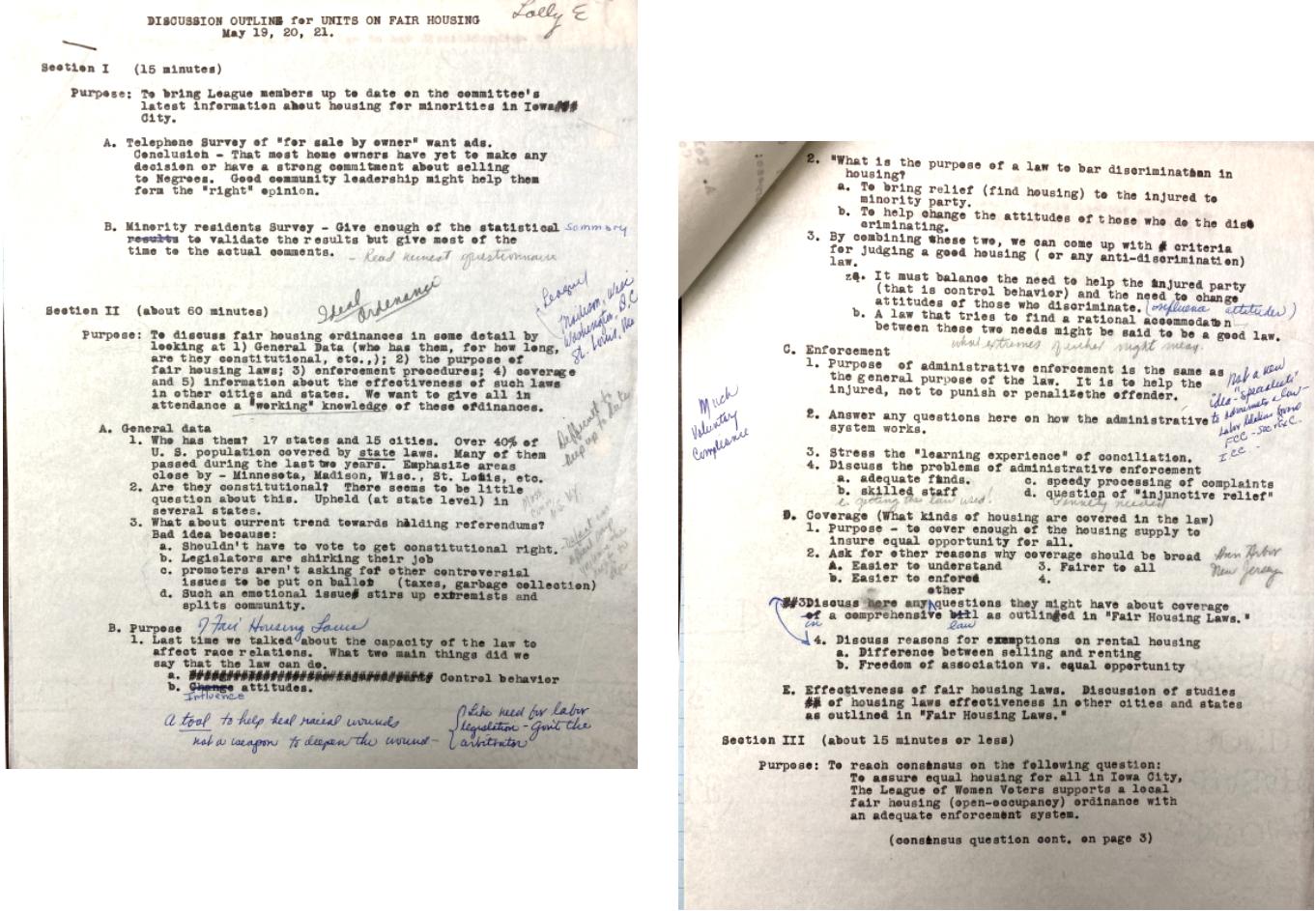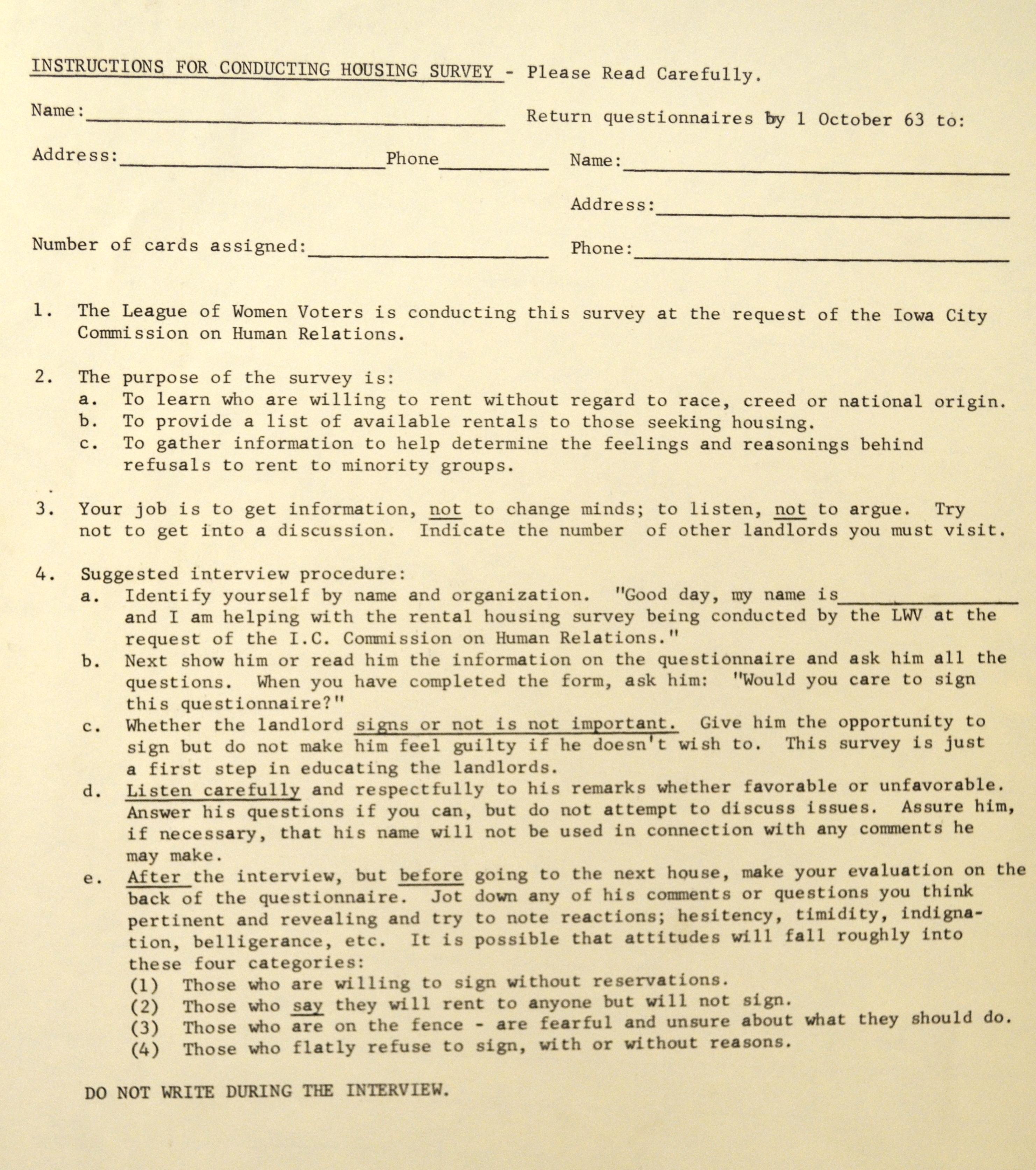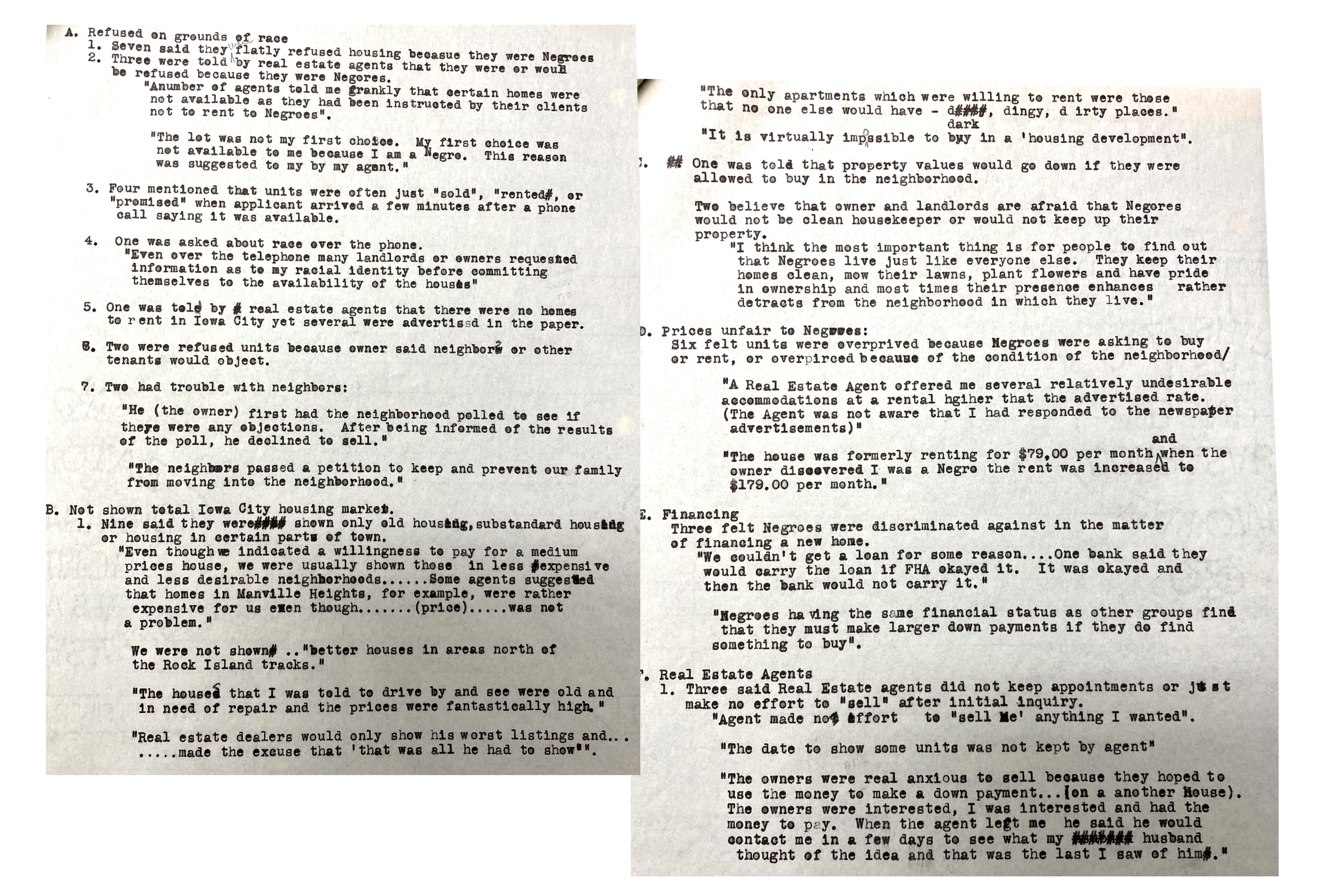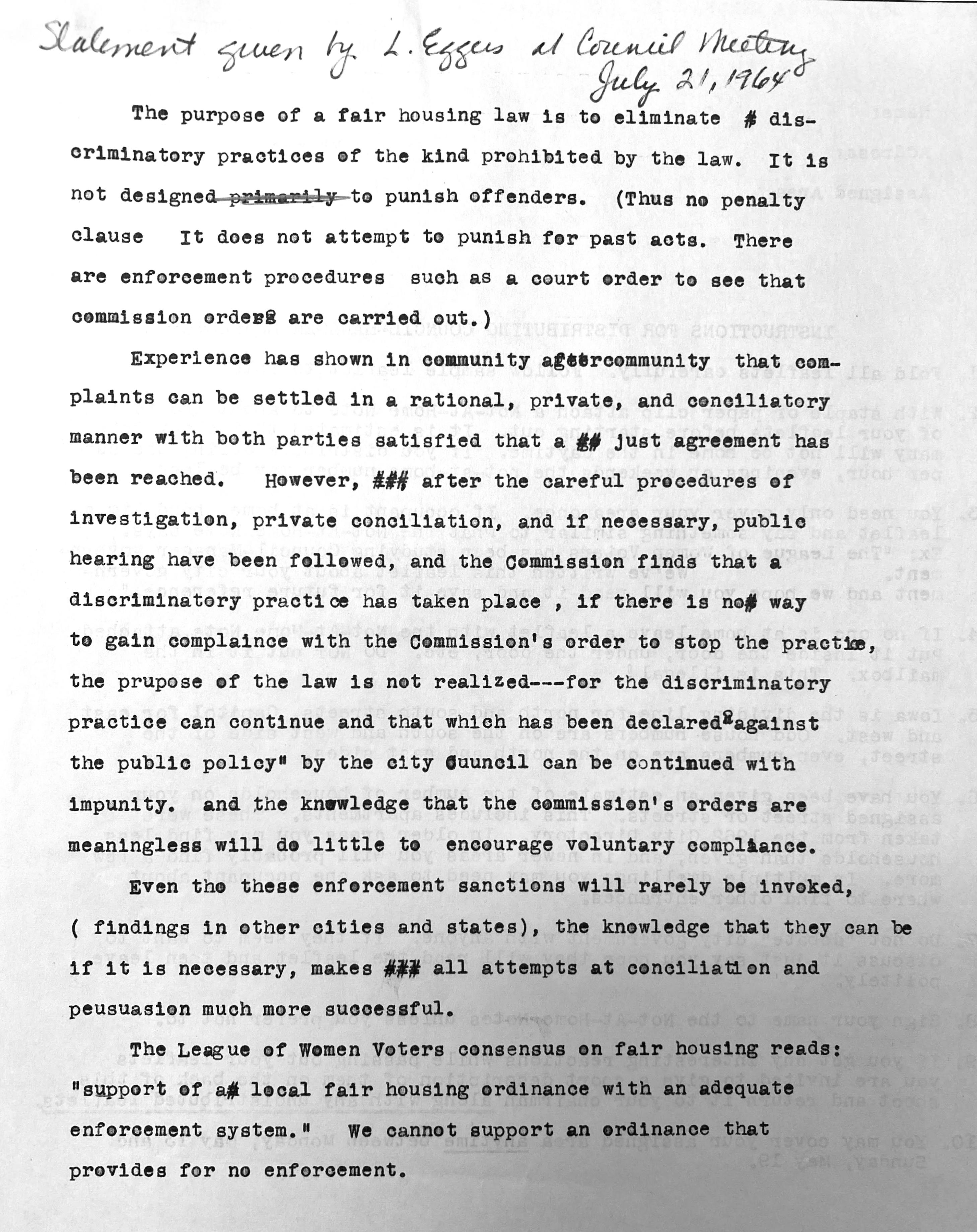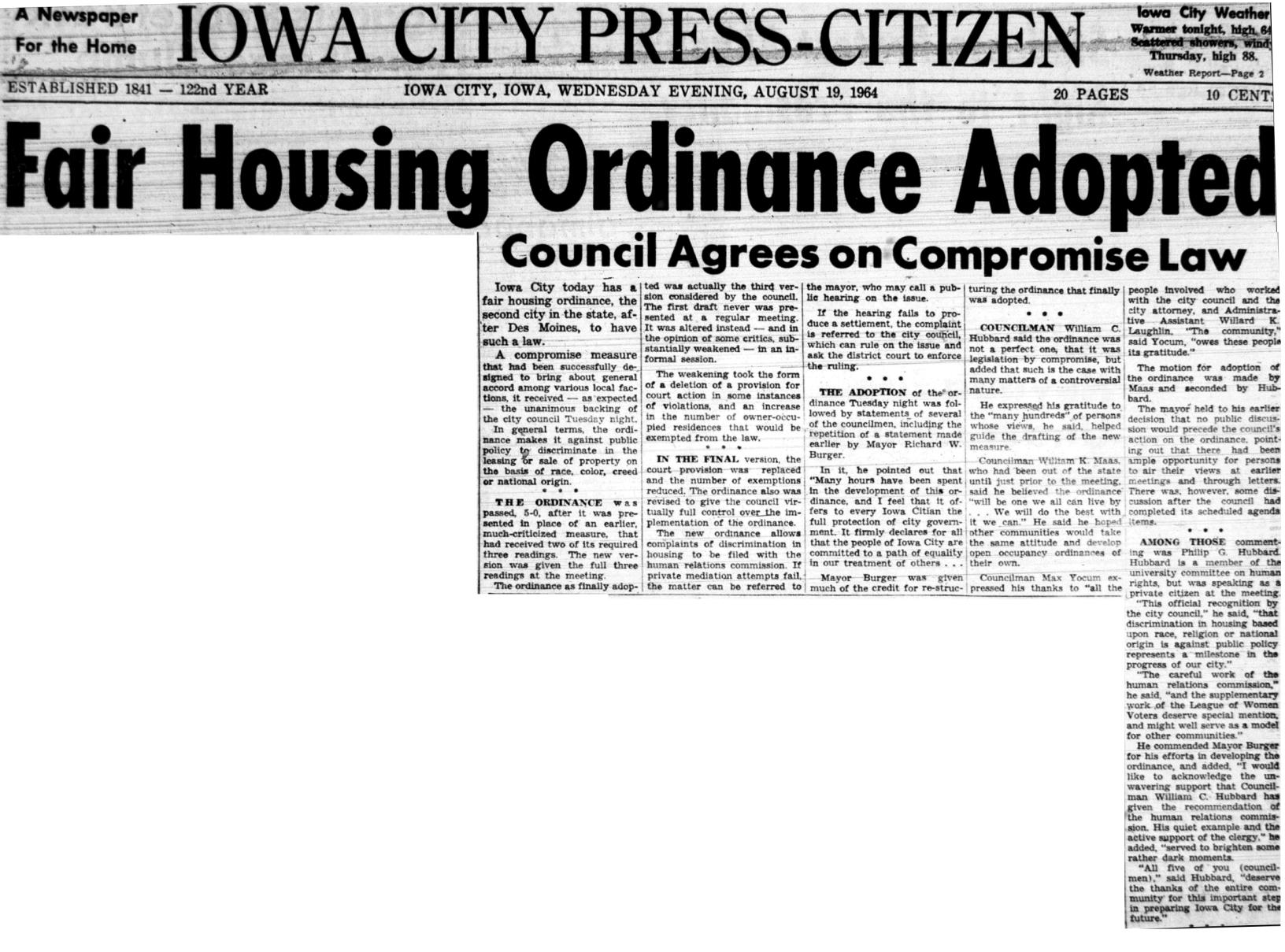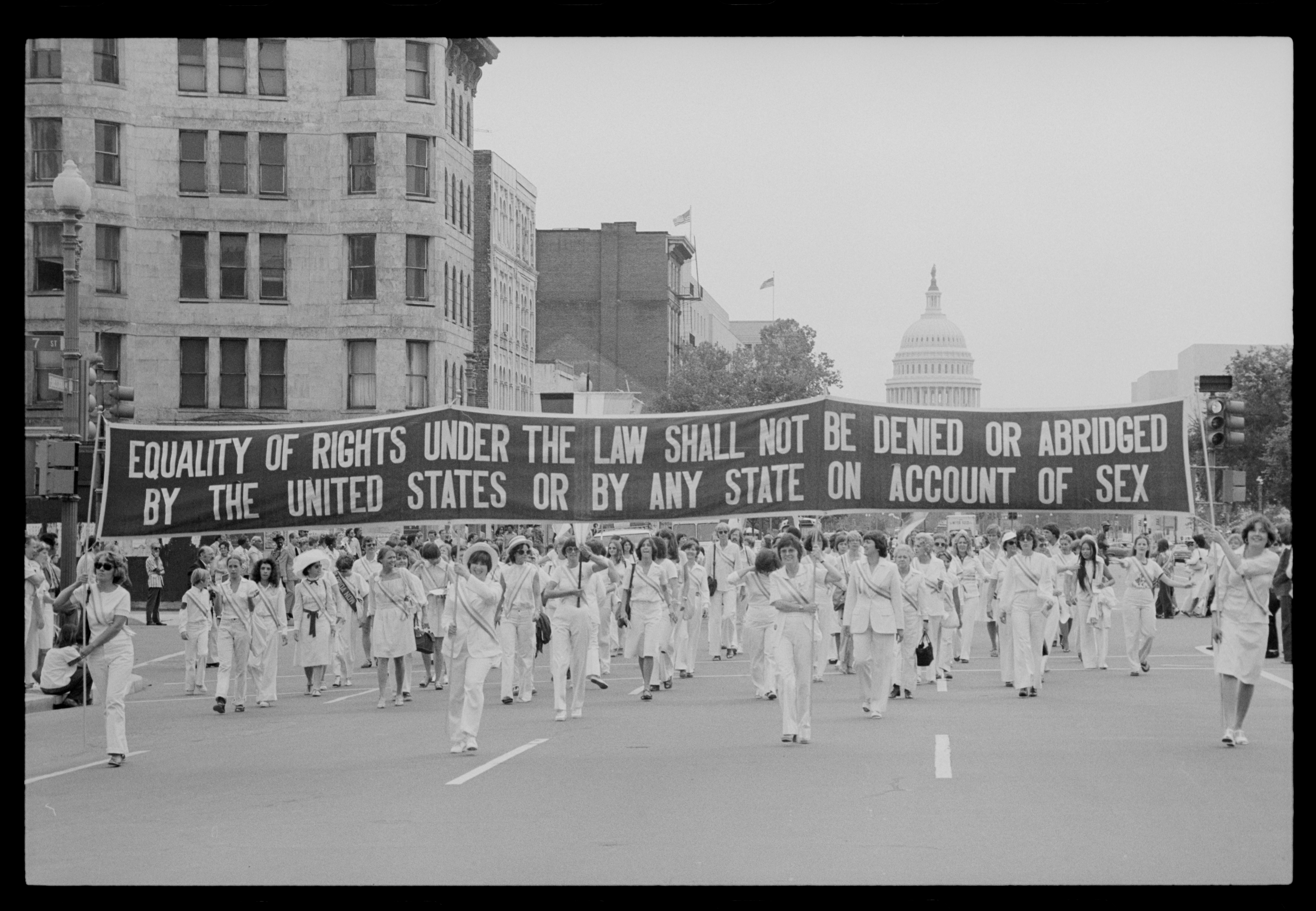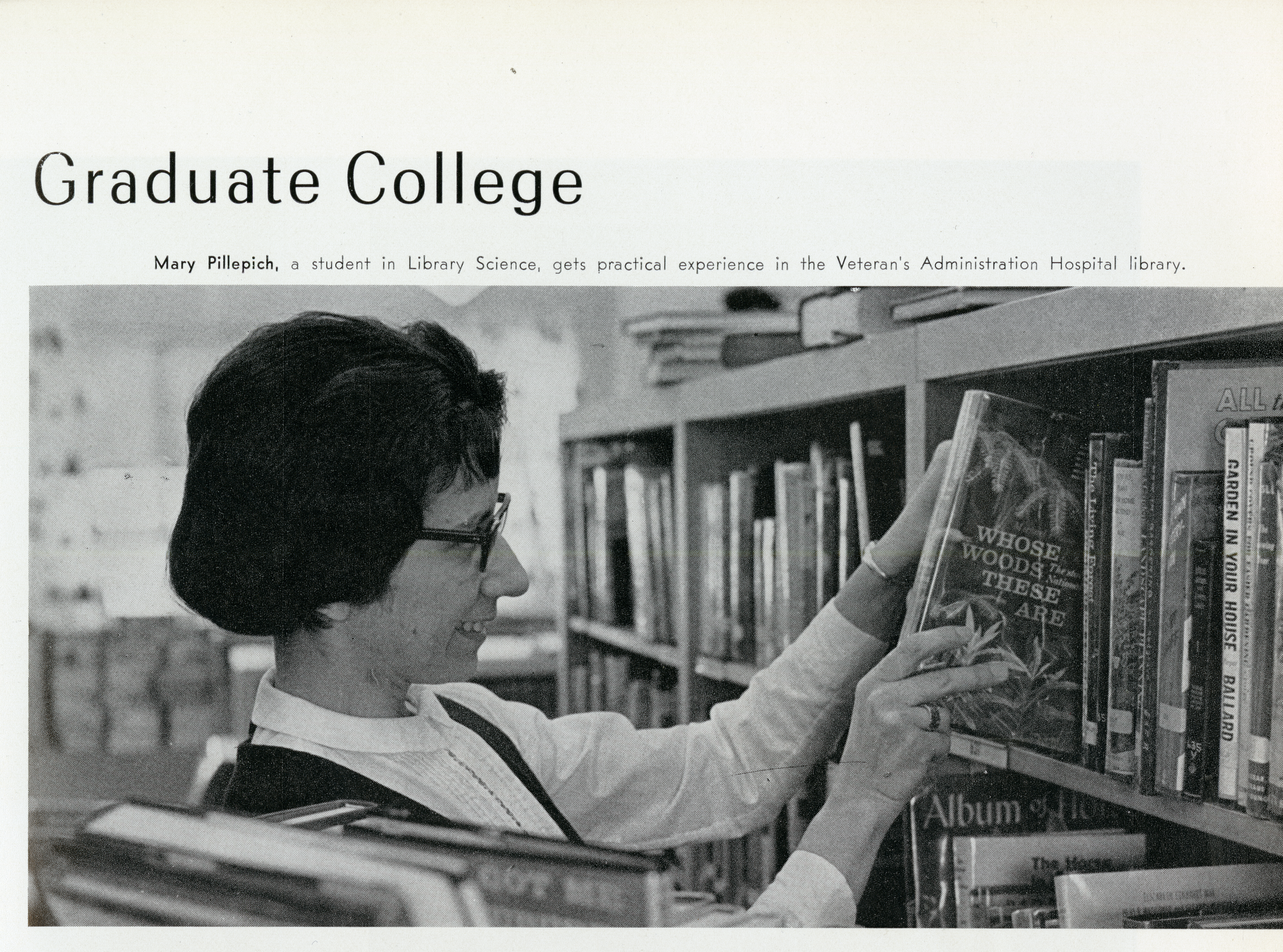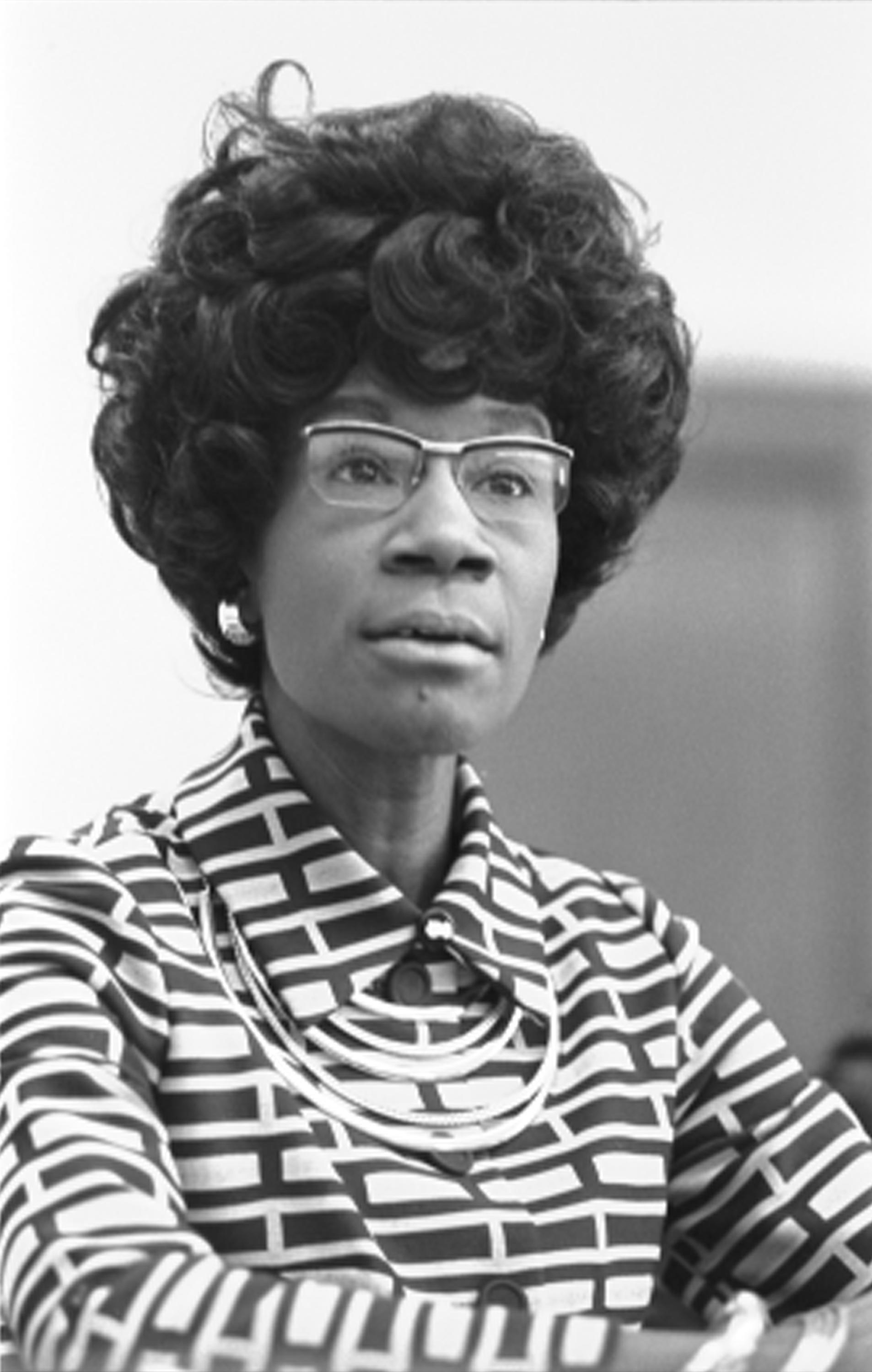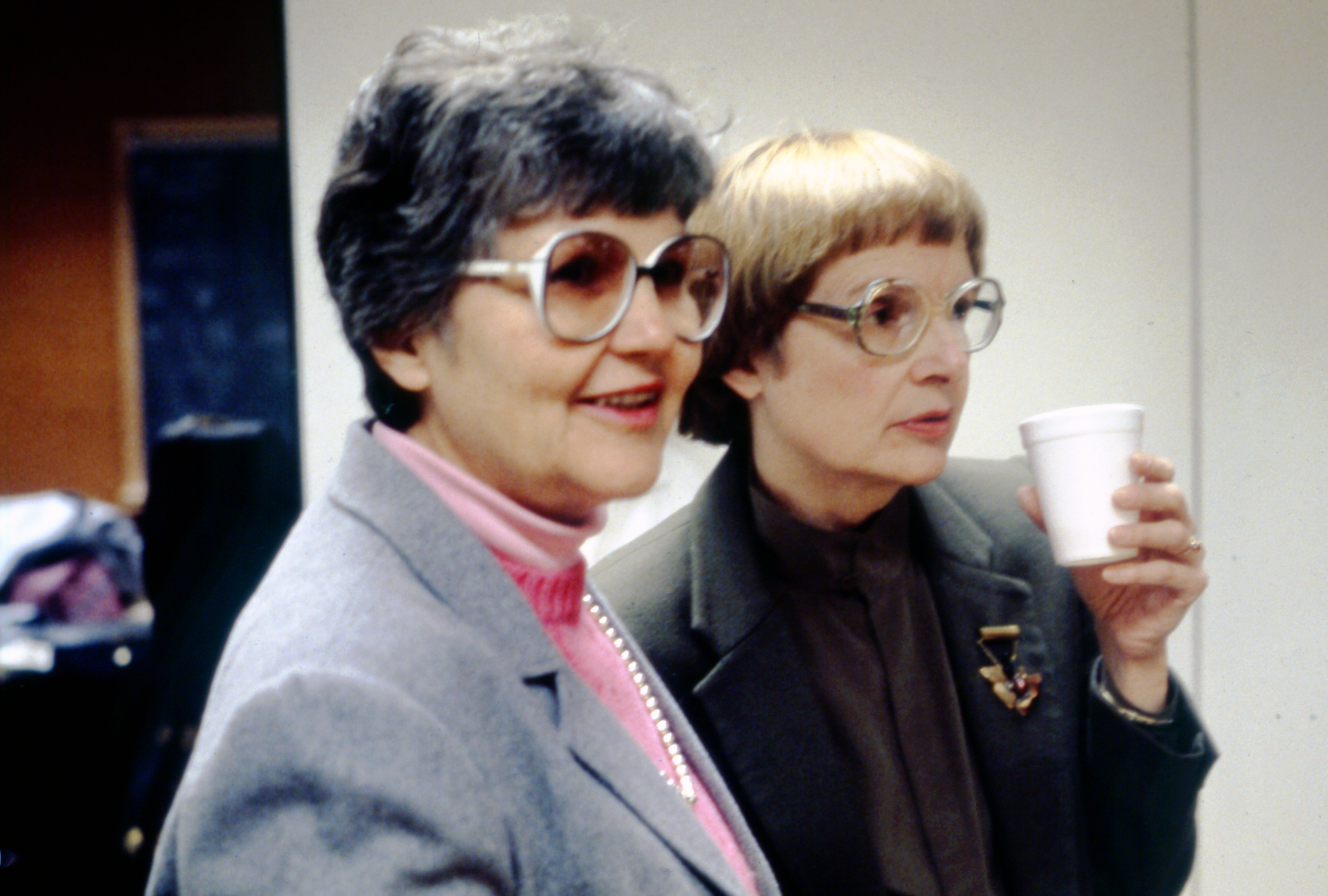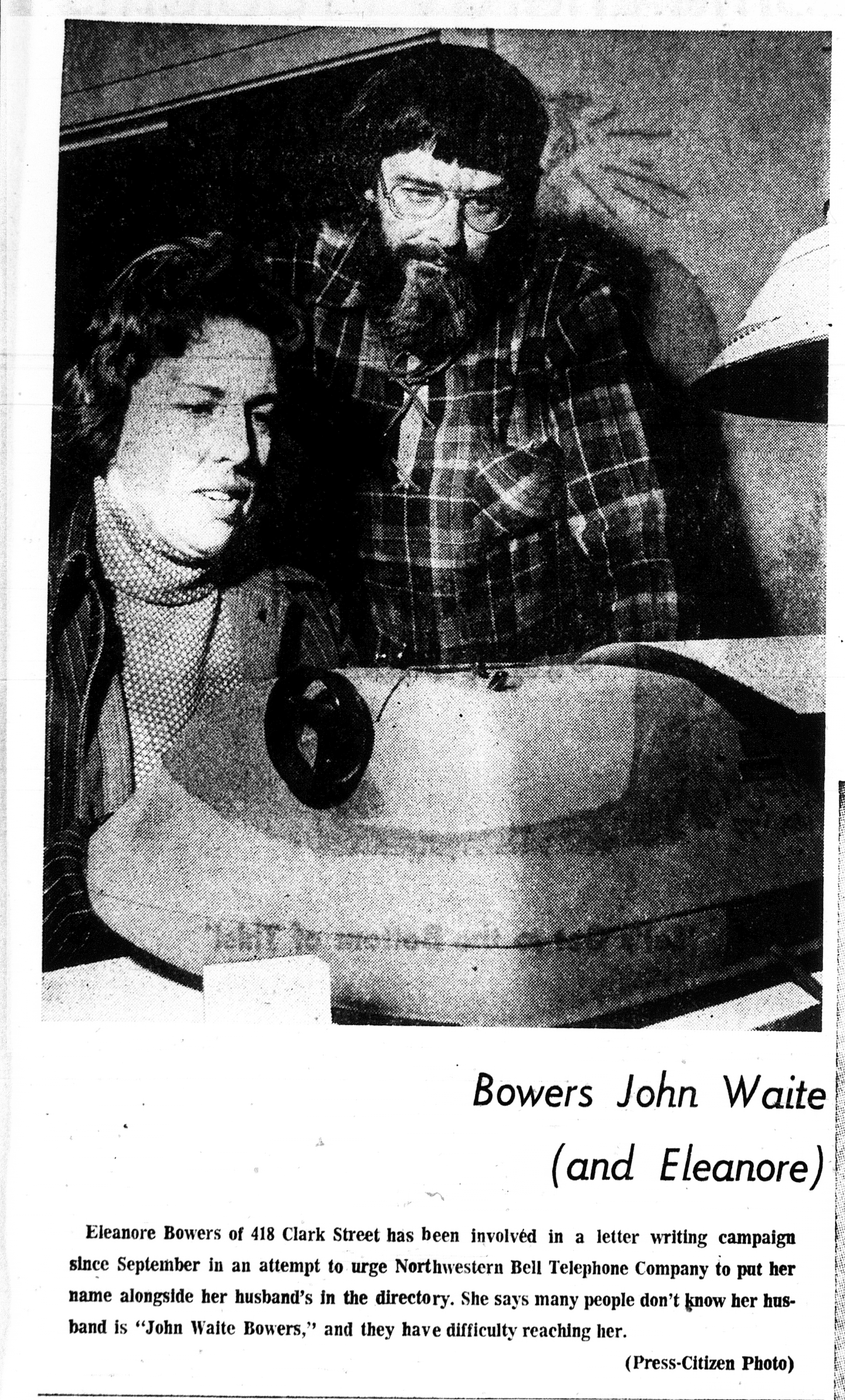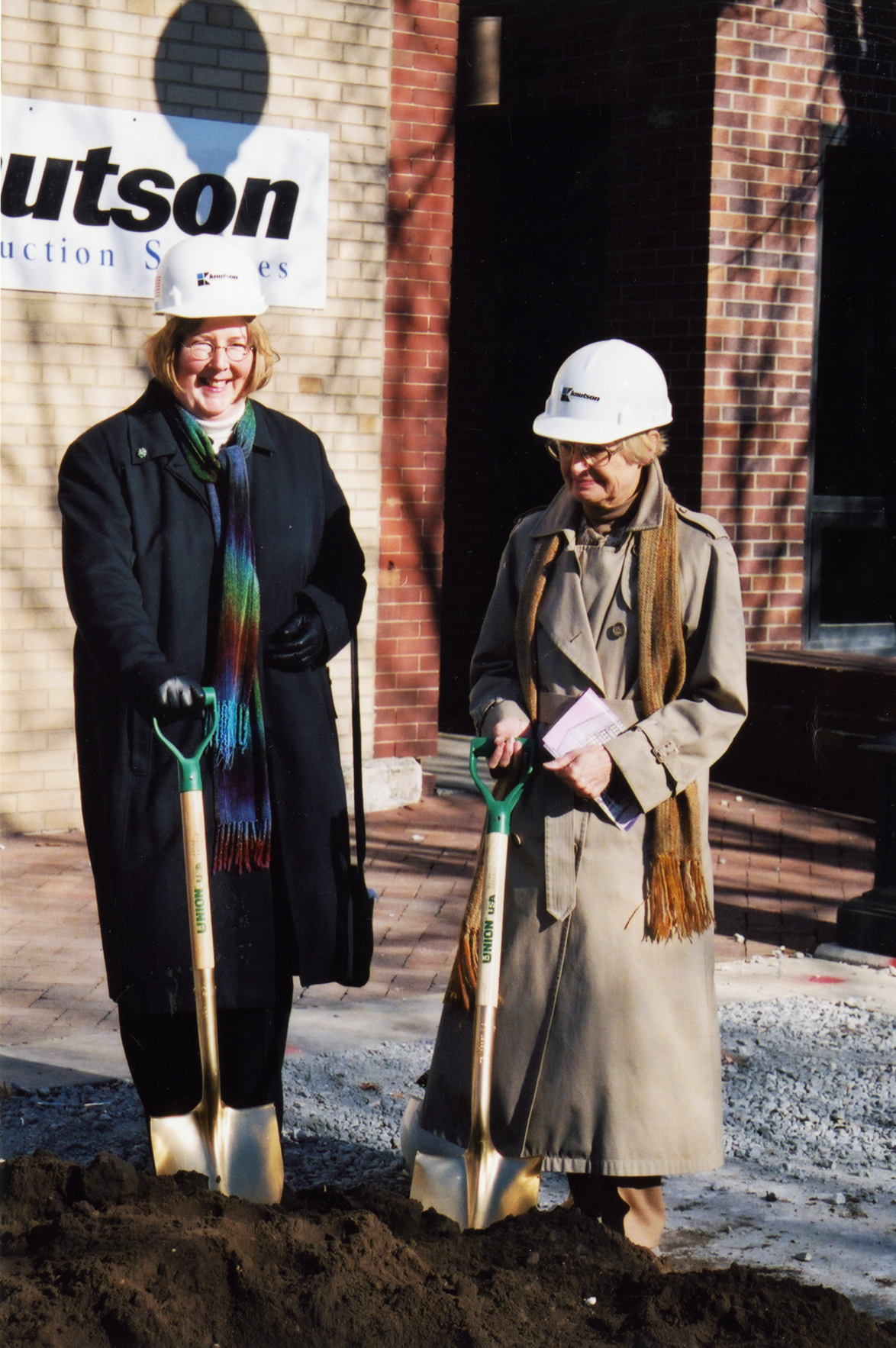Celebrating Lolly Eggers, ICPL director from 1974-1994
Lolly was small in physical stature but a giant in all ways that count. She built ICPL into a modern, nationally respected and locally beloved institution, always moving forward, always looking for ways to improve, relentless in her support of the public good.
 Susan Craig, Library Director from 1994 - 2018
Susan Craig, Library Director from 1994 - 2018
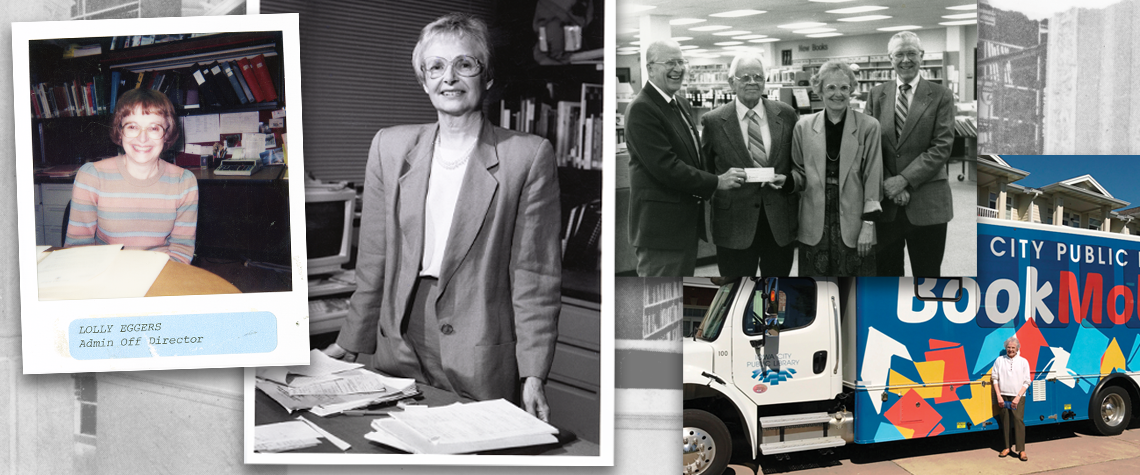
The Life of Lolly Eggers
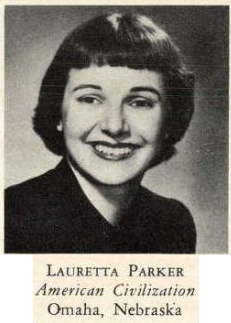
College senior portrait. (Grinnell yearbook, 1951)
Laurette “Lolly” Parker was born on October 25, 1929 in Omaha, Nebraska. She grew up in Des Moines, Iowa. She was very interested in books and served as the editor of the high school paper. Her high school advisor, who was a Grinnell graduate, helped Lolly get a scholarship to attend Grinnell.
Lolly was the first in her family to attend college. While at Grinnell, Lolly’s future husband—Del Eggers—courted her on the golf course. In 1951, Lolly earned her Bachelors in Anthropology, married Del and moved to Iowa City.
Lolly began work at the Iowa City Public Library in June 1969 immediately after earning her MA in library science from The University of Iowa. She was the Director of the Iowa City Public Library for 20 years, from 1974-1994, when she retired.
Lolly continued to dedicate herself to the Library after she retired. She wrote two books: A Century of Stories, The History of the Iowa City Public Library, 1896-1997, published by the Iowa City Public Library Friends Foundation (ICPLFF); and Iowa City's Irving Weber: A Biography, published in 2006 by Trafford Publishing. She also volunteered for many years at ICPLFF’s used book shop, The Book End.
Lolly’s passion for staff education resulted in creation of the Lolly Eggers Fund for Staff Development of the Iowa City Public Library Friends Foundation.
Stories from Lolly's life
Lolly's impact on ICPL
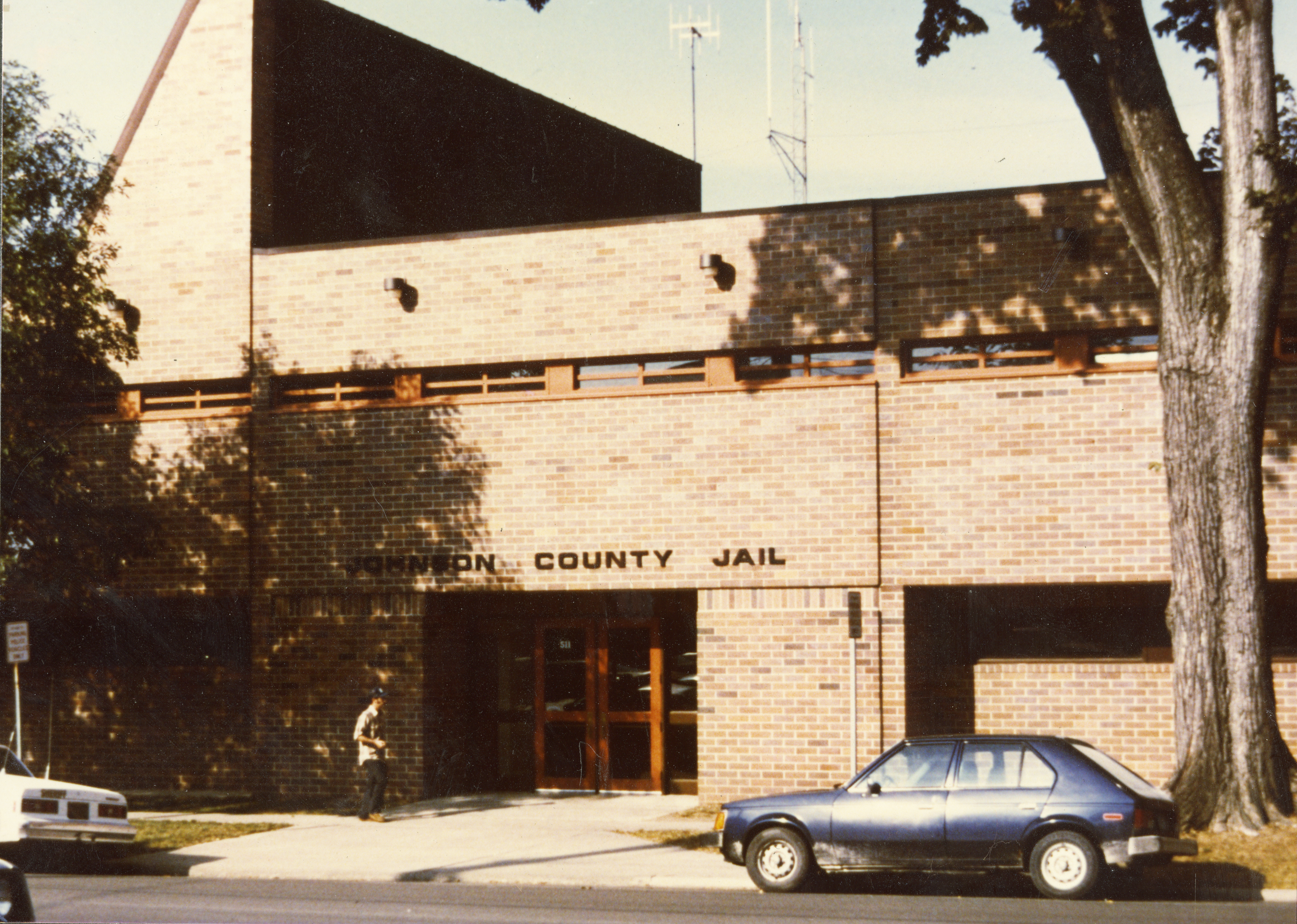
The Only Constant in Libraries is Change
Library services expanded under Lolly's leadership.
By 1974, the Iowa City community required services to extend beyond the Carnegie building’s walls. A then-anonymous donation launched the library’s weekly service to Johnson County Jail inmates. ICPL also expanded their services by working with community organizations to host outreach collections supplied by ICPL. Partnerships were forged with a long list of organizations, including Oaknoll, United Action for Youth, the Women’s Resources and Action Center, and local group homes to name a few.
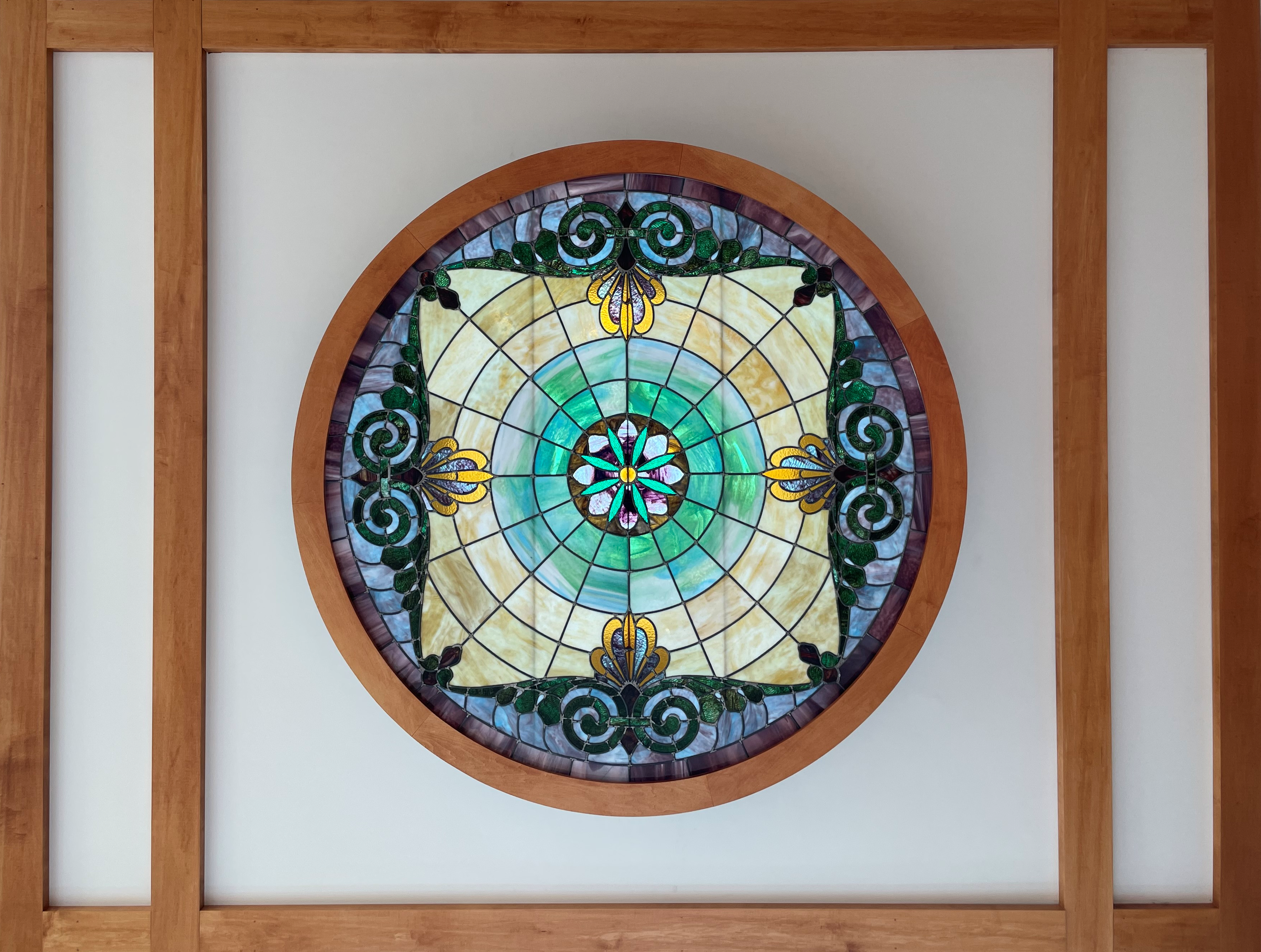
Bumpy Road to Directorship
ICPL Director Jack Hurkett resigned in May 1974. By June, Lolly was among 3 finalists for the position. She had her master's degree in library science, had experience as acting director as well as technical services manager, and was a passionate and organized leader.
By secret ballot, the library board voted and, in a split decision, selected Charles Kauderer as the new library director. Two requirements for the job were a library degree and experience in library management. Kauderer had neither.
Lolly was later told by Arthur Canter that the board wanted a man in the position to control the "clique of radical women librarians."

Fact-Finding Librarians
Throughout July, evidence arose that Kauderer falsified information on his application. Lolly was among 7 staff librarians signing a petition requesting a meeting with the board about his lack of credentials. While that meeting never happened, the board held a public meeting on July 25 and scolded the librarians for their fact-finding mission. By July 30, Kauderer submitted his resignation, citing staff criticism.
The public outcry over a bungled hiring decision forced a second search for a new director. Lolly continued on as acting director, delivered results for the library, and relieved the board from making day-to-day decisions. This helped heal the broken relationship between the board and staff. By Spring 1975, Lolly was officially hired as ICPL's 14th library director.
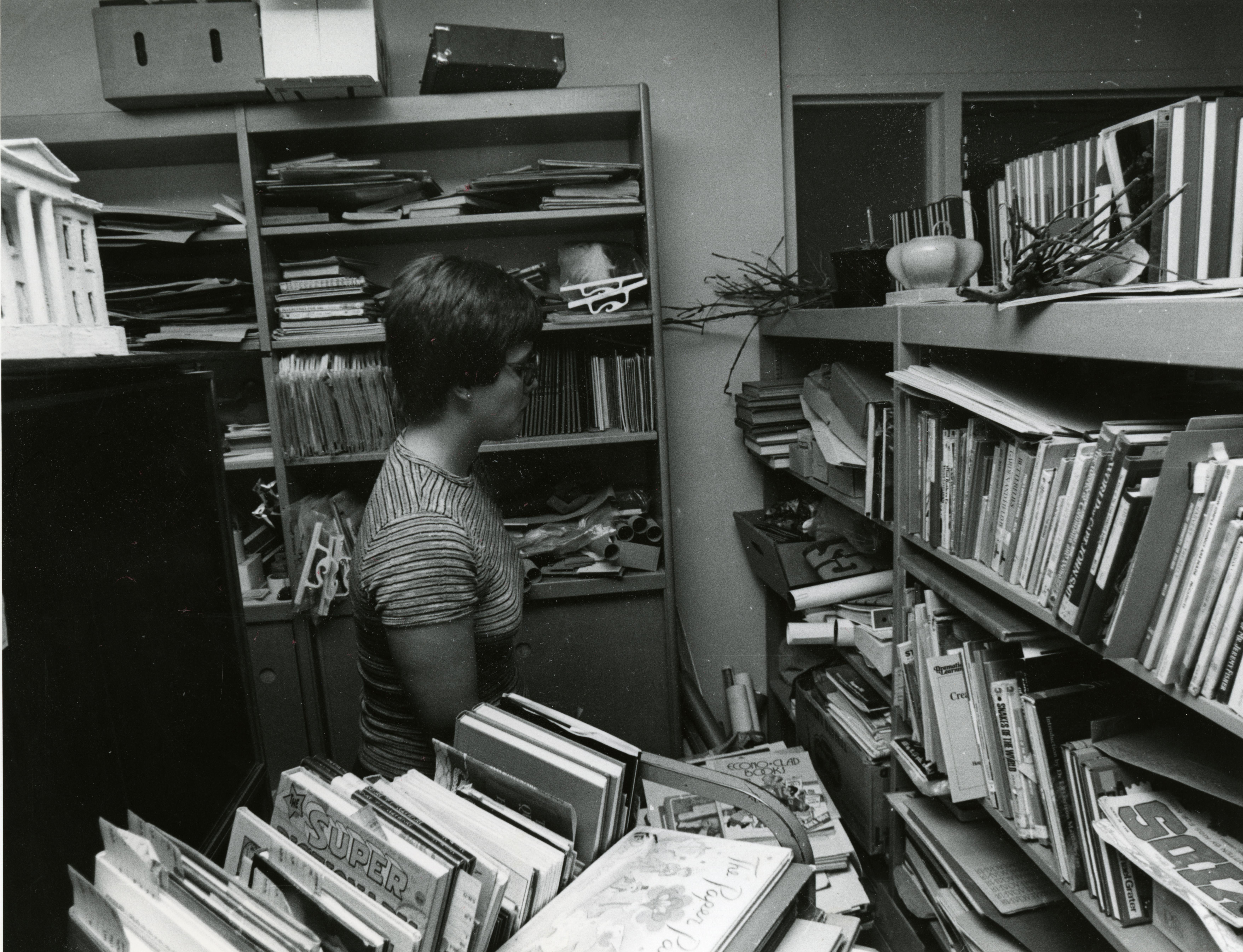
A New (huge) Goal: Build a New Building
Lolly was a leadership powerhouse wrapped in a petite package.
By the early 1970s it was obvious that the 1963 addition to the Carnegie Library would not suffice for the next 20 years as originally planned, due to its poor design, small size, and limited handicapped accessibility.
One of Lolly’s first major projects as director was to solve the building’s space problem. Lolly led the way through the design process, and the Library Board had accepted a building plan for the new building by 1976.

Building Citizen Support
Building a new library required passing a ballot referendum to approve the funding for the project. Decision day was November 7, the day of the midterm elections under the Carter Administration.
Lolly led weekly meetings with the library’s public information committee, Lynda Ostedgaard and Suzanne Richerson, to plan the campaign that would win enough public votes needed to fund the new building. Lolly directed the committee to gather input at public hearings. She directed staff to find the evidence that would prove to voters that the new library was worth the money.
The campaign slogan was “A New Library for Everyone” for a reason. The Carnegie building and its ‘63 addition failed to serve citizens in wheelchairs. Seniors with limited mobility also struggled to move around in the space. Most of all, the building didn’t even meet the contemporary building codes!

Building Citizen Support
City Councilmember Carol deProsse campaigned for a Council seat on the promise to build a new library. She moved into a leadership position on the library’s own campaign, allowing Lolly to focus on the details of planning the building and running the library. Public supporters of the building campaign included the Iowa City Education Association, AFSCME (the city employee's labor union), and editorial staff from both high school newspapers.
What happened on November 7? The library campaign won by a slim margin and achieved its funding goal. Every vote counted.
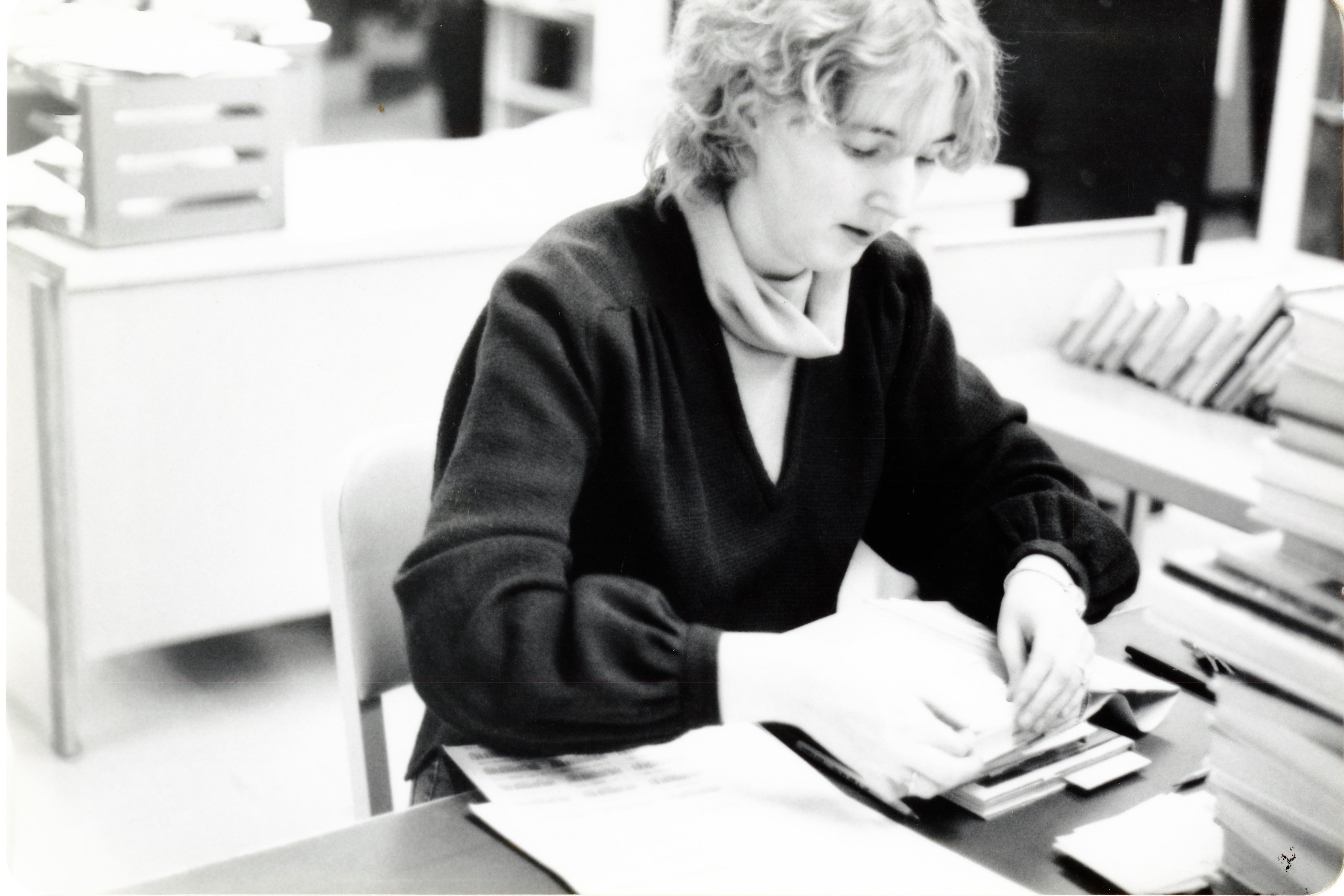
Computers & the Future of Libraries
Early in 1979, Lolly closed the Carnegie auditorium and had it converted to a room holding the Library’s first microcomputer and several keyboard terminals. The purpose and goal for the room? Directing library staff to transform each paper catalog card into a computerized bibliographic record, with the now-critical component of a barcode identifying each specific item.
By the time IBM introduced its first personal computer (PC—yes, THAT “PC”), Lolly had forged a path for ICPL to launch the first online catalog in any U.S. public library. Lolly had the foresight to include the costs for an online catalog in that $3.5 million funding referendum—another example of her fiscal and political savviness.
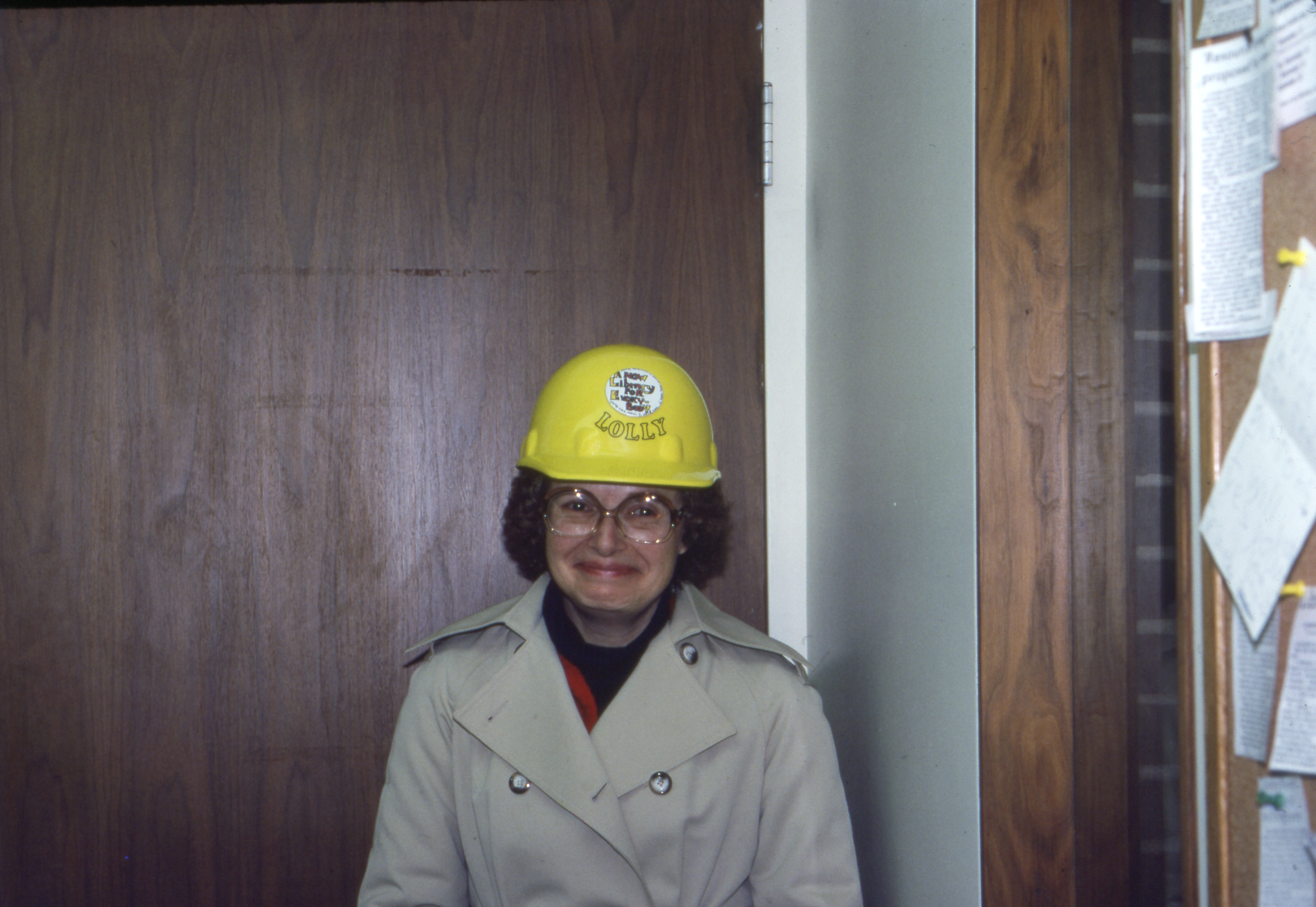
No, Actually—Literally—Building a Library
Lolly planned the groundbreaking ceremonies for October 11, 1979. The place to meet? 123 South Linn Street. The construction phase saw many decisions left to be made.
Lolly led the staff and board members in planning a myriad of details: carpeting, shelving, furniture, audio visual, telephone locations, signage, and security to name just a few.

The First Yellow ICPL Card
An automated system needed a barcode both for the item and the borrower. For Lolly, the next step required for automation was clear: Each library user needed their own identification number for borrowing, and that number was pasted to a wallet-sized piece of yellow plastic that would be carried around in handbags and pants pockets for years.
From 1979 to this day, ICPL patrons know their library card at a glance—it's the yellow one hiding in the plastic thickets of credit and loyalty club cards. Before the end of the year, the automated circulation system was live. “Touch terminals” were added by Fall 1980.

Leaders Beget Leaders
Between the time the Carnegie building shuttered its doors on May 27, 1981, and the grand opening of 123 South Linn Street on June 15, Susan Craig led 700 volunteers in carrying more than 6,000 boxes of books across the street in sweltering heat.
It was a well-coordinated effort, leaning on organizational leadership skills learned from Lolly herself. Books went from shelves to boxes to strong arms to carts to aisles to shelves—a two-week procession led by a librarian with a smile on her face. True leaders lead their team from the trenches. Choosing Susan as the volunteer leader was a smart move by Lolly. The effort saved the Library and City $20,000, or about $60,000 in 2021 dollars.

Sacrificing Sundays
Lolly’s work in Iowa City’s activist community may have earned her the skills she needed to lead this urban library through budgetary challenges and constant change. Having cultivated great organizing and strategizing skills, she used her political savvy to consistently demand high-quality institutional capacity worthy of the Iowa City community.
The 1970s and '80s saw a budgetary tug-of-war between The City Council and the Library. In order to offer high-quality service throughout the entire week, the Library needed credentialed staff. The City Council supported extending hours but not the money it would take to hire educated staff.
Sunday afternoons were some of the busiest times in the Library, but despite this, budget shortfalls would require cutting those service hours. In 1978, the City Council refused to add additional money for staffing in the FY79 city budget, and Lolly and the Library Board chose to close on Sundays and Thursday evenings rather than provide lower quality service.

Becoming an Organized Organization
Implementing new heights for organizational management, Lolly initiated the Library’s first strategic plan. She developed the five-year plan with the help of a staff, a small group of trustees, and community volunteers.
The plan, called "Library Priorities for the '80s," was adopted by the library board in July. The plan contained many firsts: a mission statement, operating principles, and goals. It was a new tradition: The next Library strategic plan would come in 1988.
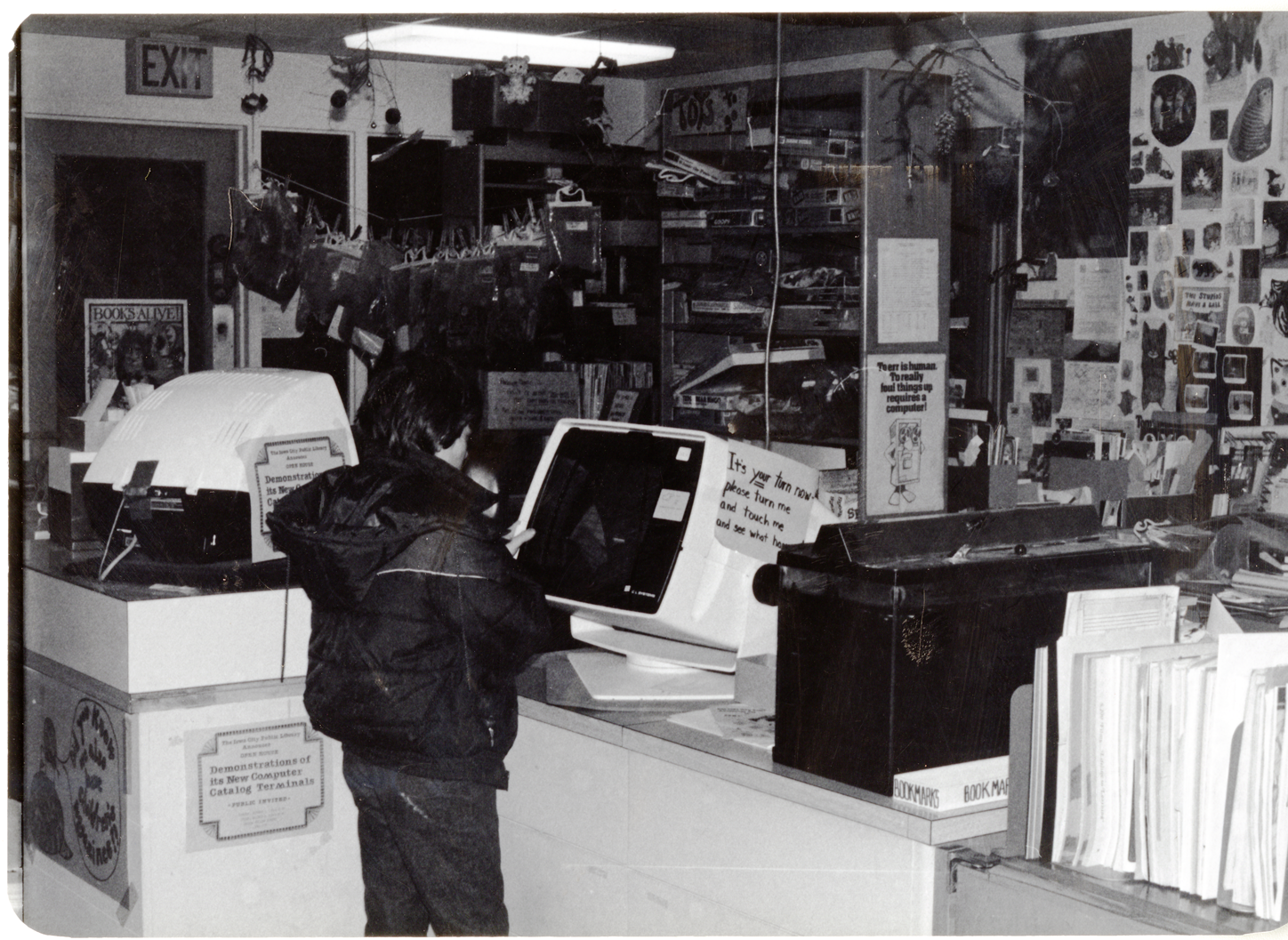
Well Before Google
Under Lolly's leadership, the ICPL was always innovating.
Nearly 10 years after the official “birth of the Internet,” the Library’s Reference department launched a CD-ROM version of a reference network: REFNET. A precursor to online information databases, REFNET gave librarians easy access to the answers to patron questions. ICPL wouldn’t have its own website until 5 years later, right around the time of the infamous “Y2K” panic.

Handing over the building keys
Having Lolly as a mentor and cultivating excellent leadership and organizational skills herself, Susan Craig became the 15th director of the Iowa City Public Library after Lolly retired in 1994. Susan led the library through the next 24 years of change.
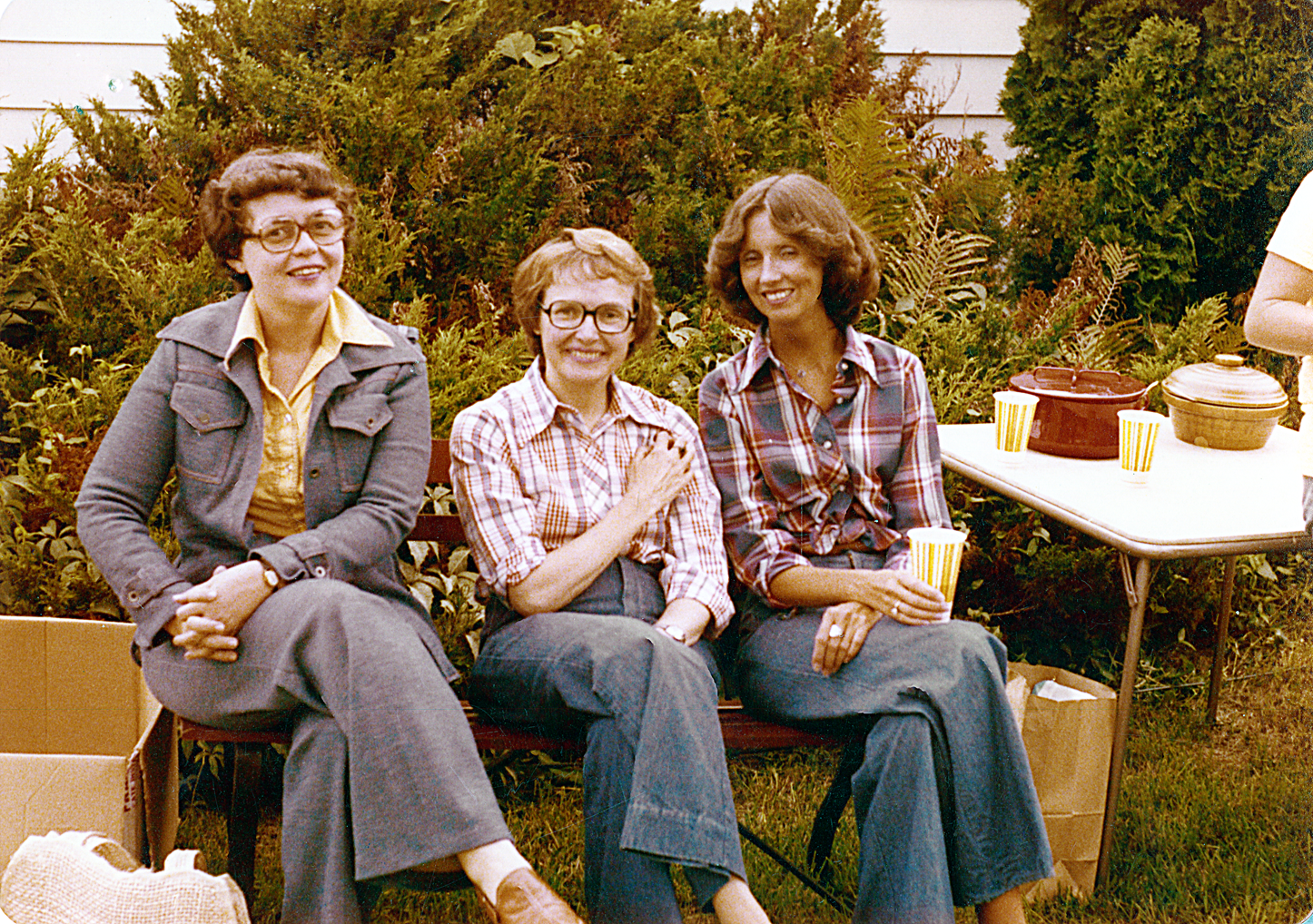
Power in Numbers

"Lolly trusted her heart and the numbers to tell the story."
--Hal Penick, ICPL Librarian/Coordinator from 1984-2013
In her own words
Tell Me Your Story was a series where Ellen Buchanan interviewed people who had a large impact on Iowa City. Here Lolly talks about her life in activism and her contributions to the Iowa City Public Library.
Lolly's impact on Iowa City

Books That Made the Difference
As an anthropology student at Grinnell College, Lolly read the book "The Chrysanthemum and the Sword: Patterns of Japanese Culture" by Ruth Benedict. Written towards the-end of World War II, the book delves into not only what it means to be Japanese but also the importance of trying to understand the heritage and values of another culture. Thirty-five years later, Lolly presented this at the “Books That Made the Difference” panel discussion for the Friends of ICPL annual meeting. The book had a profound impact on Lolly, most notably in how she came to see that understanding the values and beliefs of another person or culture was intrinsic to solving problems and co-existing peacefully. This can be seen in the way she fought for the rights and fair treatment of others, engaged with community, and advocated for equal access to all the Library could offer.
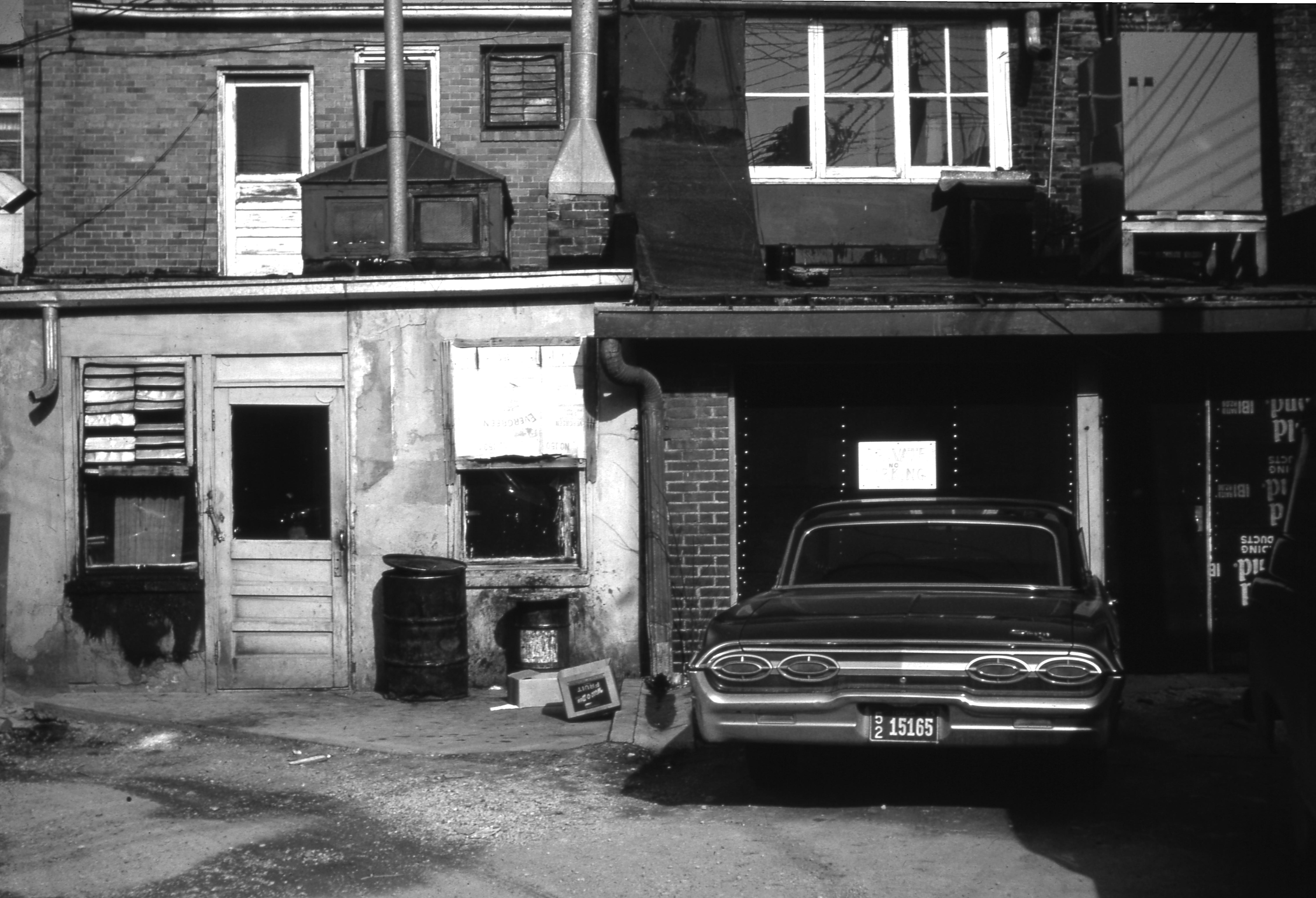
Civil Rights and Housing Discrimination
In 1963, Iowa City established a Commission on Human Relations, with the express purpose of "studying the problems of the relationships of the various races, creeds and nationalities" in Iowa City, as well as "to eliminate prejudice, intolerance, bigotry and discrimination."
The League of Women Voters immediately signed on to work with the Commission, with Lolly as the Chair of the League's ad hoc committee. Over the next 18 months, they conducted an intensive study of discrimination in housing in the Iowa City area. One of their end goals was to have Iowa City adopt a "fair housing ordinance."
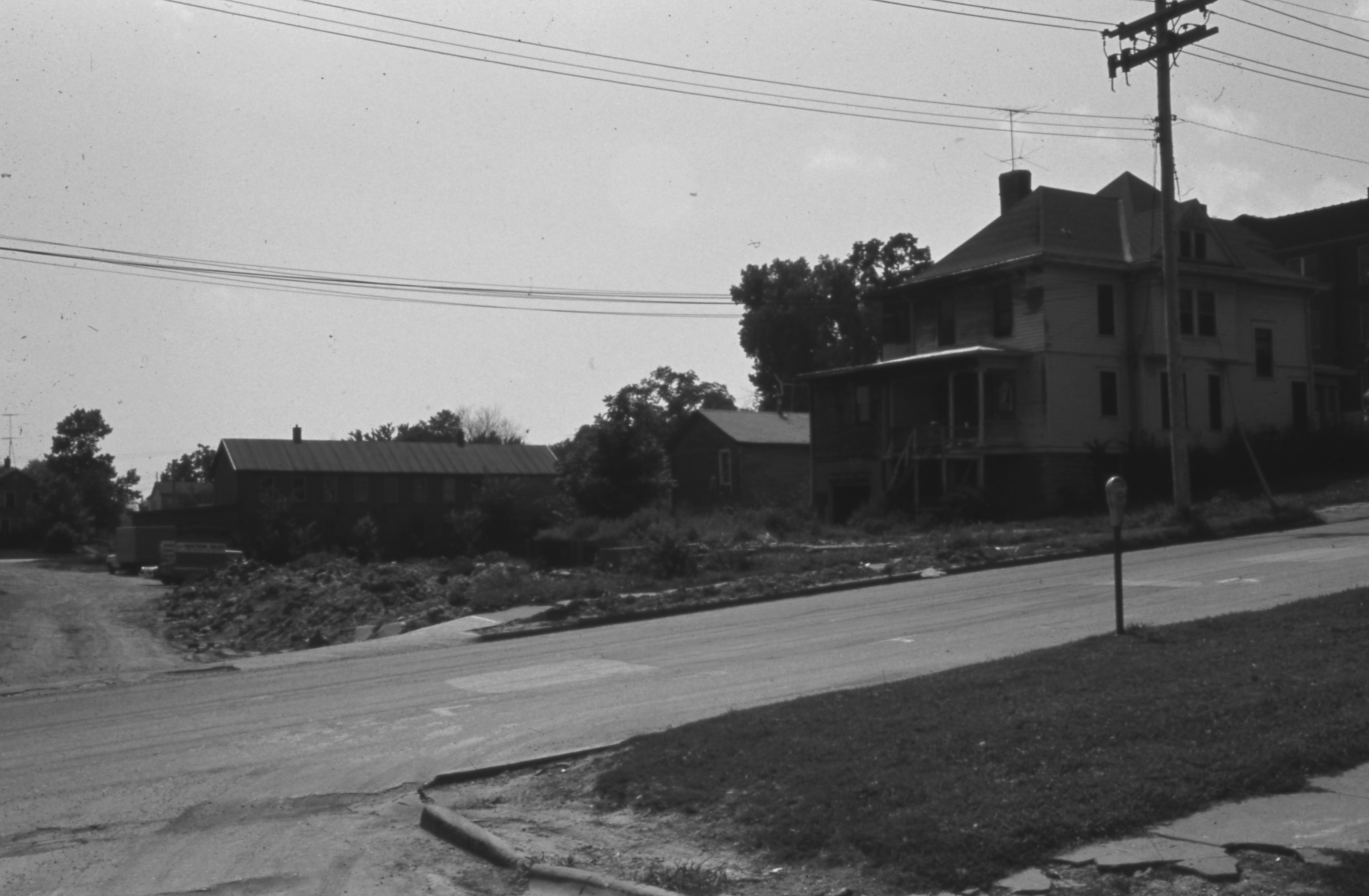
Surveying Local Landlords
Part of the work they did was to survey over 300 landlords in Iowa City, with the intent of finding their views and opinions on fair housing practices and the possible ordinance. Members of the LWV were careful to conduct interviews in a way that explained the ordinance thoroughly, encouraged participation in the survey, and was non-confrontational.
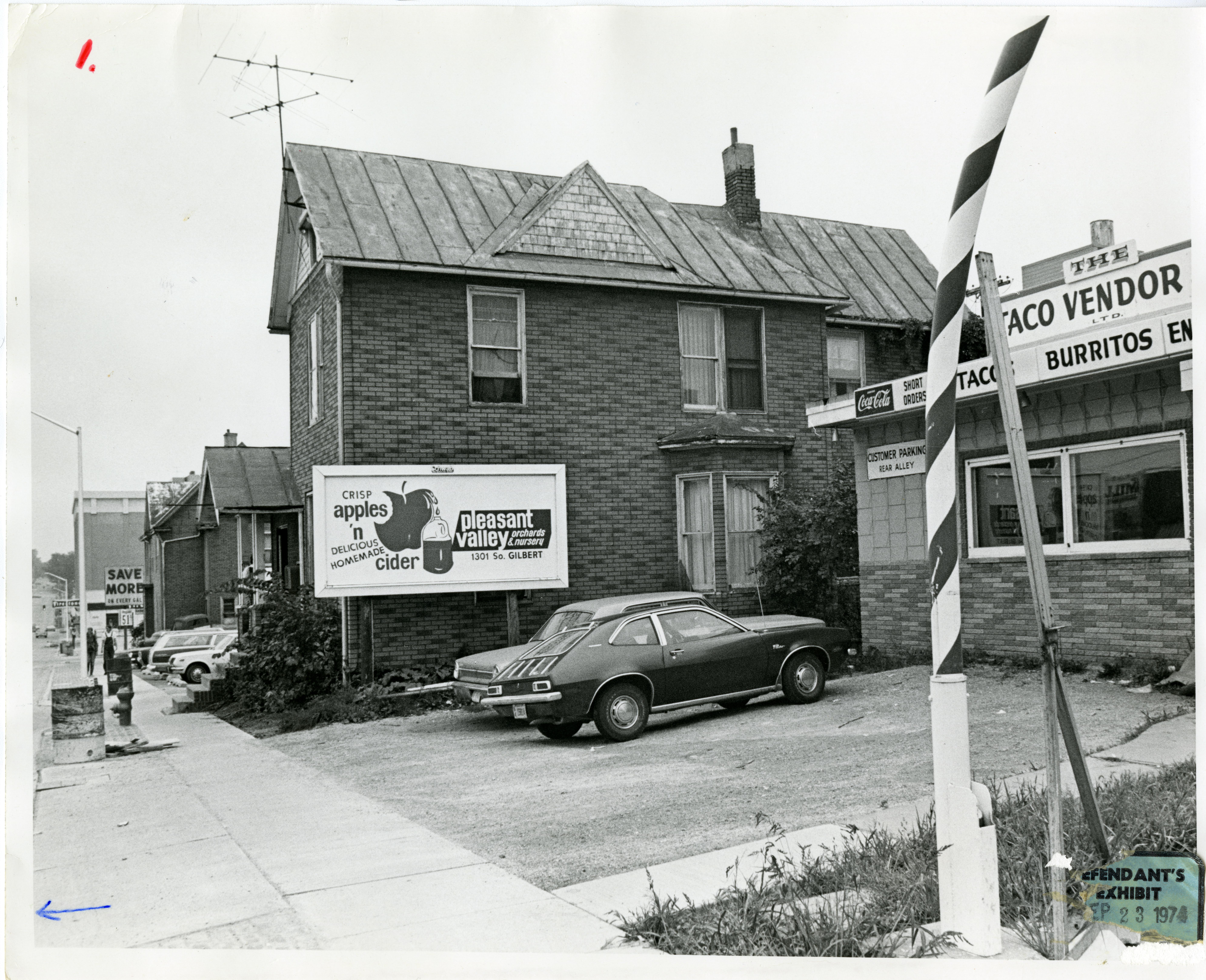
Listening to Individuals Who Were Trying to Find Housing
In order to get a full picture of the situation, LWV also sought information from minority residents who encountered problems and barriers when trying to rent or purchase housing in Iowa City. Both the surveying of landlords and gathering of input from residents were succesful tactics, and the data, both statistical and anecdotal, was incredibly useful in both gauging the environment and showing why the ordinance was so necessary.
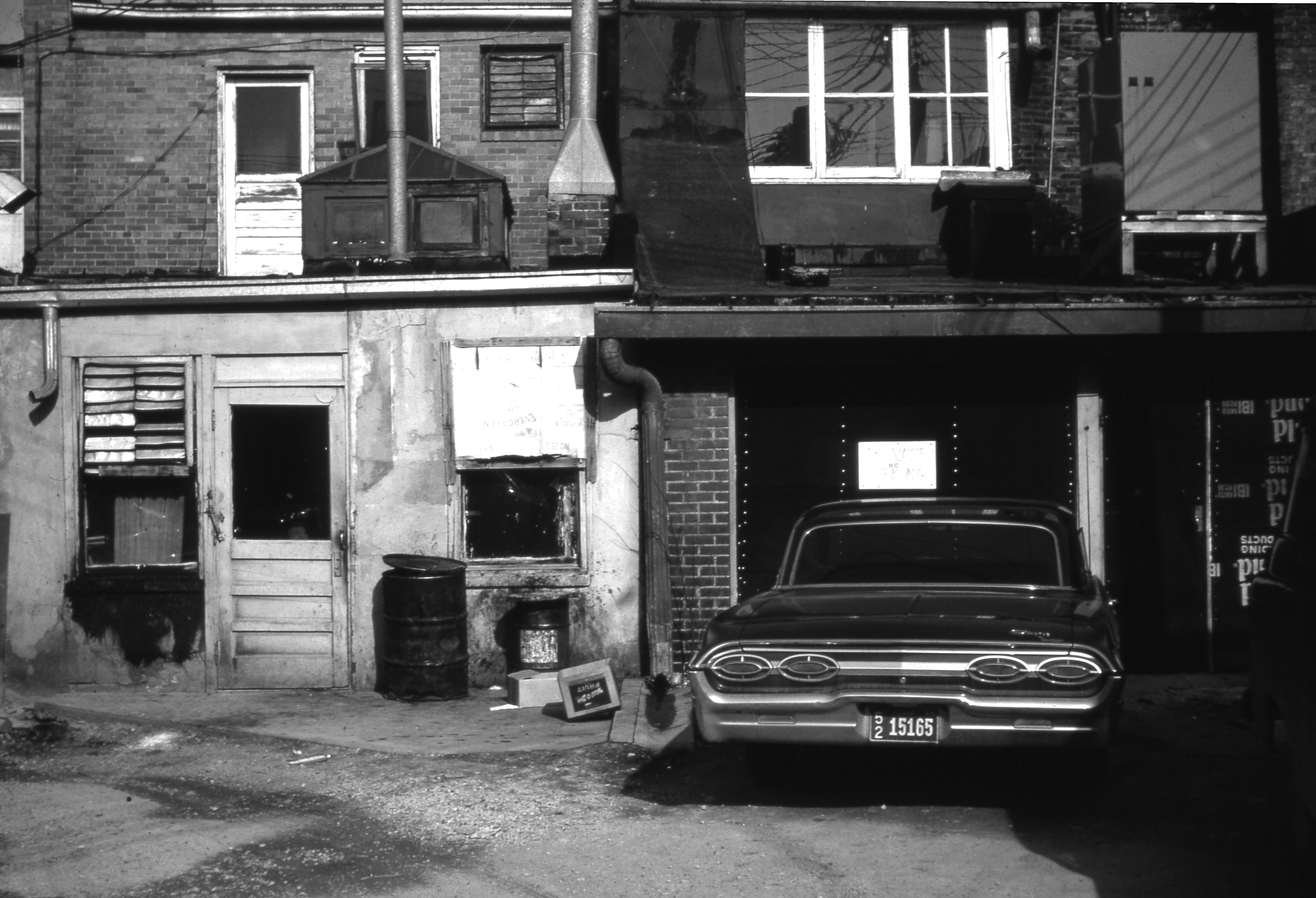
Strong Beliefs, Strong Support
The League of Women Voters, with Lolly at its helm, amassed a great deal of information that allowed for seeing the situation clearly.
They didn't stop there--they were vocal with boards, commissions, and citizens alike, sharing their knowledge as well as their beliefs in the need for a legal remedy to housing discrimination.
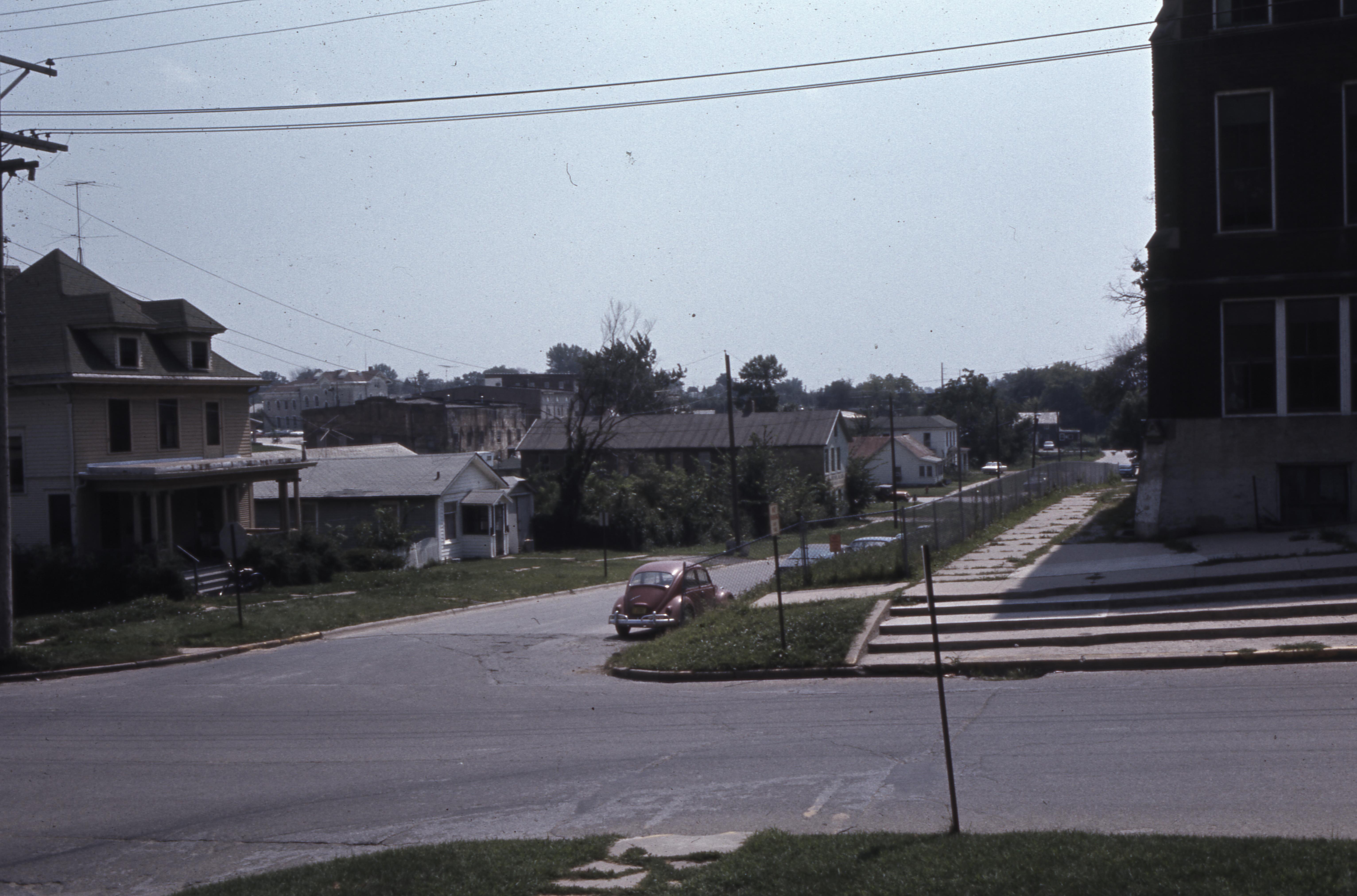
Iowa City's Fair Housing Ordinance is Passed
An initial version of the Ordinance was presented in City Council in early 1964, which elicited strong comments both for and against the proposal. After some revision, the Ordinance was passed in August.
Along with the ad hoc Commission, the League of Women Voters was instrumental in getting the word out about the need for changes in local housing practices, and for getting the legislation into the books.

Second Wave Feminist
Lolly was an active member of Johnson County League of Women Voters, the local chapter of which was founded in 1920 as the National American Woman Suffrage Association.
Lolly was a UI library student when the term "second-wave feminism" was coined in 1968. She was about 39 years old at the time and halfway done with library school. At the library she would have used as a student, UI librarians petitioned the Library Administration Dean for the right to wear pants instead of skirts at work. Signs of social change were rumbling everywhere.

Women Joining the Workforce
With their children becoming more self-sufficient, women in the '60s had more time and opportunity to pursue new interests, attend university, and join the workforce.
In 1969, Lolly was among the first class to earn an MA from University of Iowa's School of Library Science and she was hired by ICPL soon after. This photo shows Lolly's fellow library student, Mary Pillipech, getting practical experience in what it was like to be a librarian.
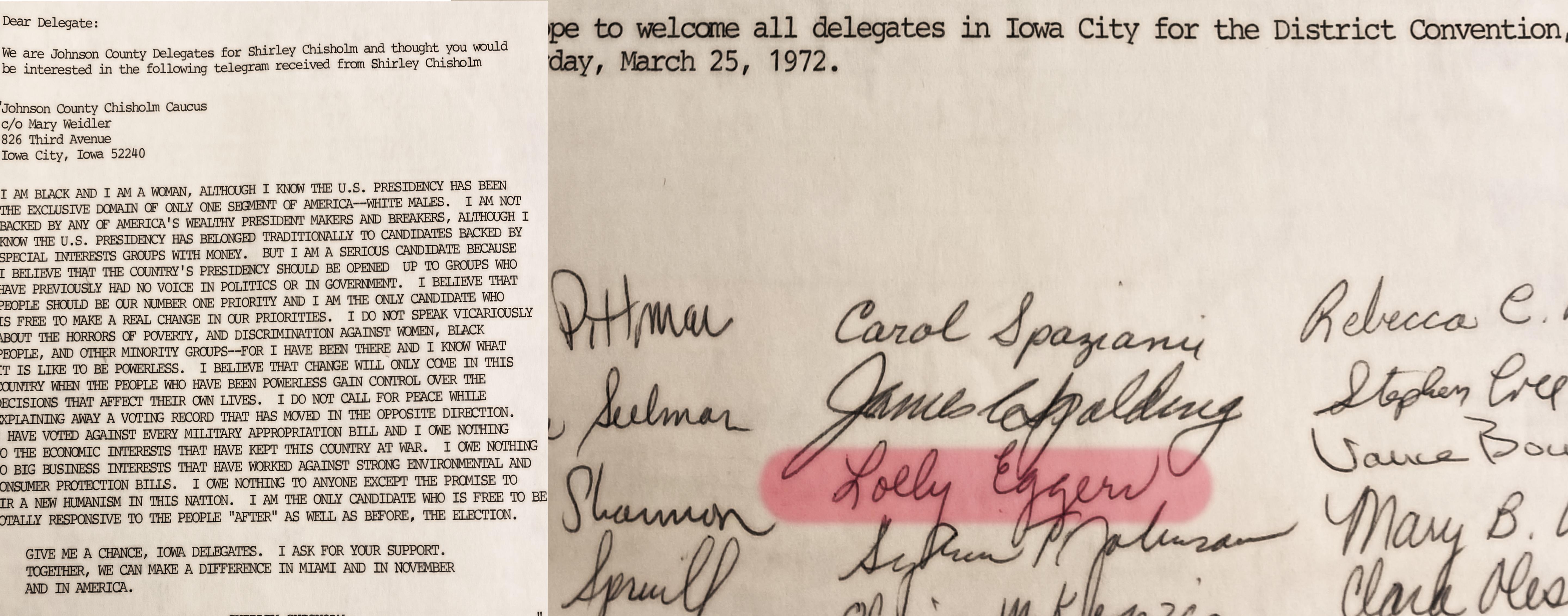
Citizens for Shirley Chisholm
Lolly added her name to the list of supporters of Shirley Chisholm in her run for President in 1972. Chisholm, who was the first black woman elected to Congress (1969-1983), was also the first black major party candidate for President, as well as the first woman to run for the Democratic nomination for President. The Citizens for Shirley Chisholm were an active group, gaining support and signatures, holding fund raisers, and sending a delegate to the National Democratic Convention in Miami.
Background image from Lolly Eggers Papers, Iowa Women's Archives, University of Iowa Libraries.
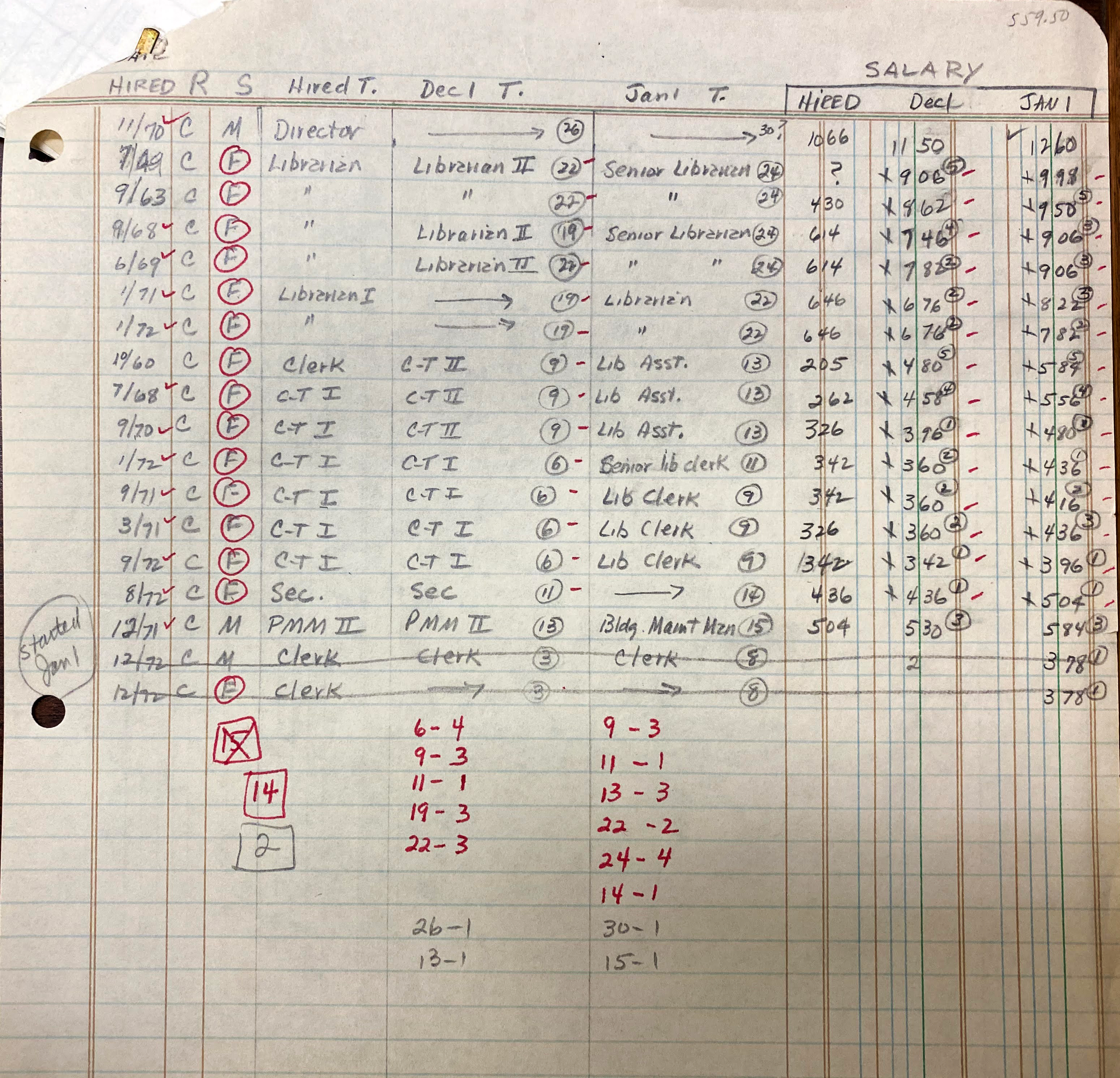
Equal Pay
In the early '70s, Lolly called attention to women working for the City of Iowa City who held higher education degrees were in job classes that ranked lower than positions held by men requiring only an eighth grade education.
Lolly--along with Carol Spaziani, Clara Oleson, and Elizabeth Diecke--filed an EEOC complaint against the City. Key evidence compared the pay between jobs dominated by men vs those dominated by women. They demonstrated the gap between pay for meter maids (women) and water meter readers (men).
Background image from Lolly Egger Papers, Iowa Women’s Archives, University of Iowa Libraries.

Which Mrs. Smith?
The battle for women's rights opened on a new front: the phone book.
Lolly was among the activists campaigning to have women's first names listed alongside their husbands' in the directory. Publishers argued there wasn't enough space and adding a name would mean an extra charge for the couple.
Women activists fought back citing examples how colleagues couldn't find a woman's address without knowing the name of her husband.

One leader's life and impact on Iowa City
"Long before schools would teach people to identify “fake news,” she battled outdated thought and opinions with facts and statistics. A tireless worker, she embraced new challenges whether it was offering a collection for everyone in a variety of formats, building a controversial new building in the heart of downtown, being the first public library west of the Mississippi to eliminate the old-style card catalog, or fighting for intellectual freedom (“If there’s not something in this library collection that offends you, we’re not doing our job”).
As a leader and a boss, Lolly was the best, offering opportunities to succeed and picking you up if things didn’t go well, letting you know that it was okay to compromise when necessary as long as you never lost sight of the goal.
Lolly Eggers was truly a member of the greatest generation."
--Susan Craig, Iowa City Public Library Director from 1994-2018
Lolly Eggers was transformational as a director. From establishing strategic plans to developing our fantastic collection to working to build our incredible community support, she laid the foundation for what ICPL is today.
But there are intangible legacies too. Her commitment to public service, high standards, well-thought out plans, using data to make decisions, staying future-focused, and mentoring the next generation of librarians are values we continue to emulate and practice at ICPL.
Lolly is such an important link in the chain of this Library’s history. And from her, we know that our role is to continue to build on her legacy in our service to the residents of Iowa City.
 Anne Mangano, ICPL Collection Services Coordinator
Anne Mangano, ICPL Collection Services Coordinator
Learn more
- Read Lolly's books:
- A century of stories : the history of the Iowa City Public Library, 1896-1997
- Iowa City's Irving Weber : a biography
- Explore images from Iowa City's past: Digital History Project
- Research census records, old directories, and more: Ancenstry.com
- Find articles from old local newspapers: Historical Iowa City Newsapers
- Research old newspapers from around the world: Newspaper Archive
- Explore a wealth of material from the UI collections: Iowa Digital Library
- Read about the history of Iowa City: Irving Weber’s Iowa City
- Find a trailblazer: Iowa Women's Archives

